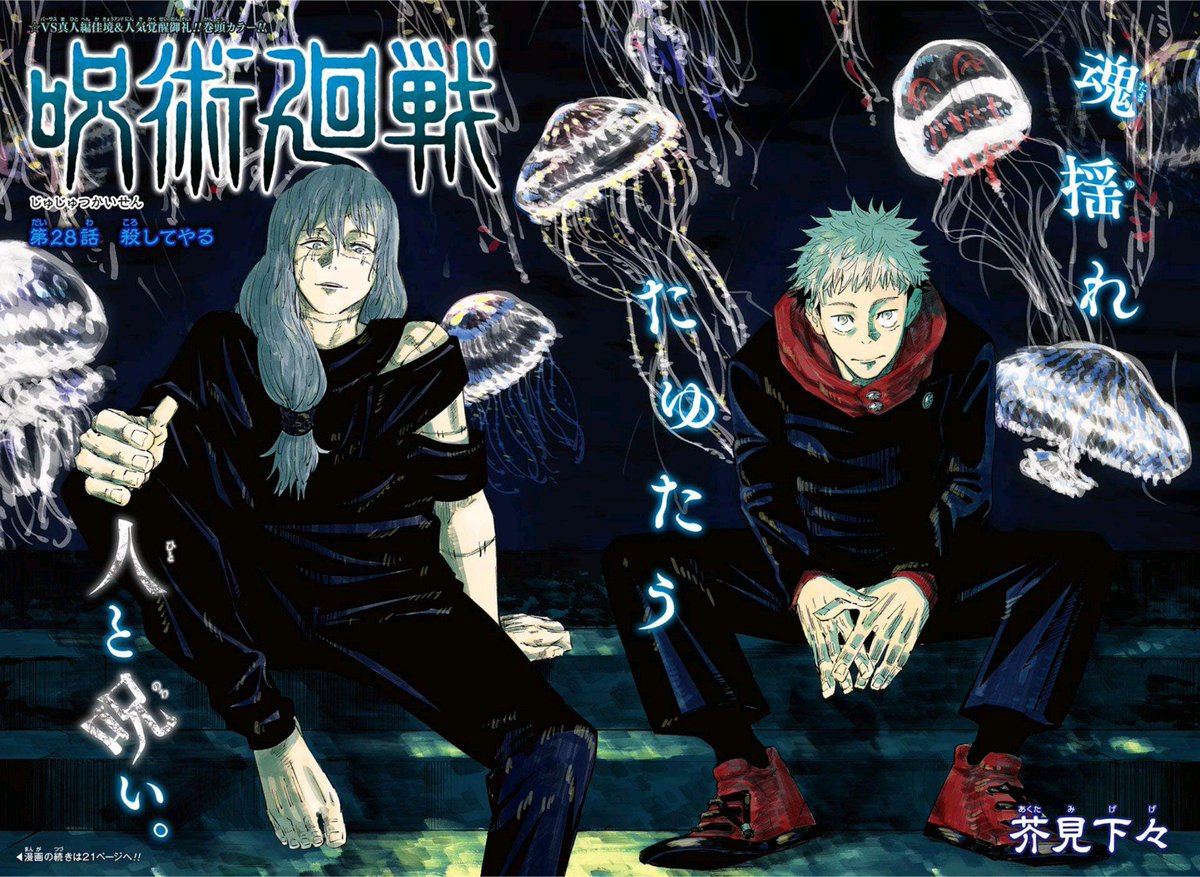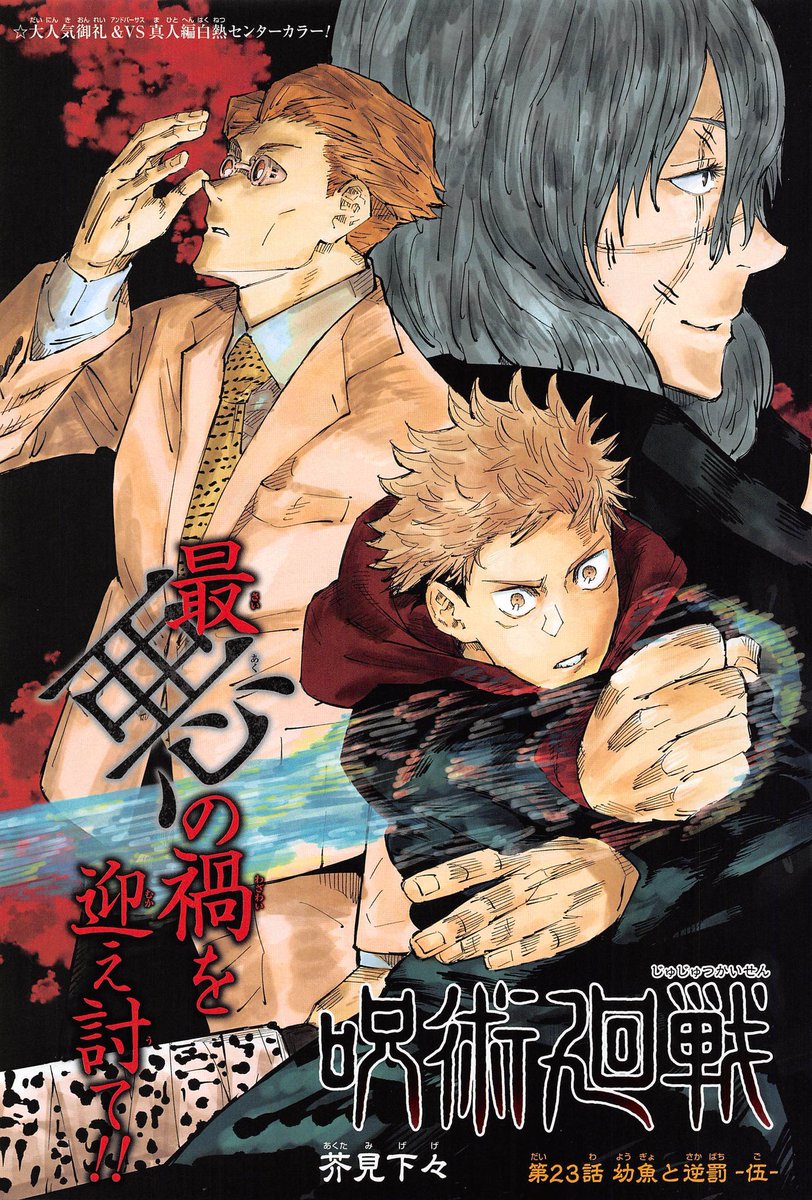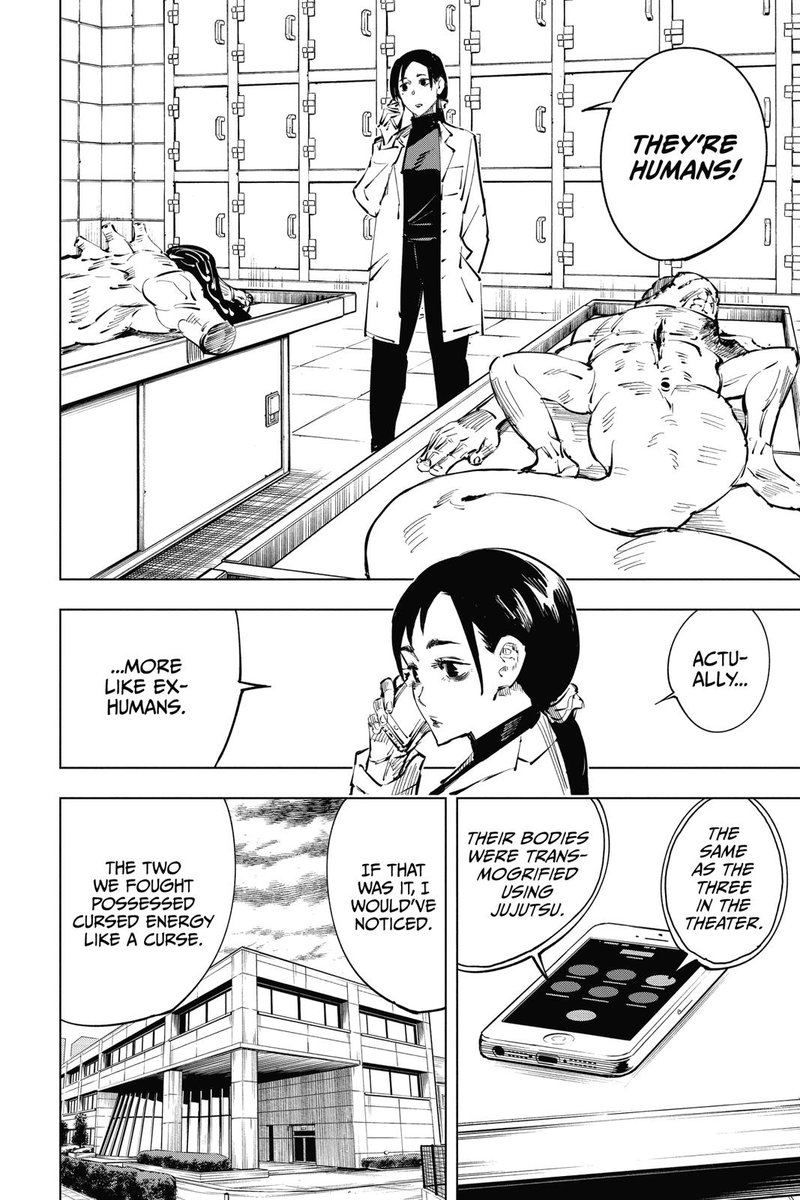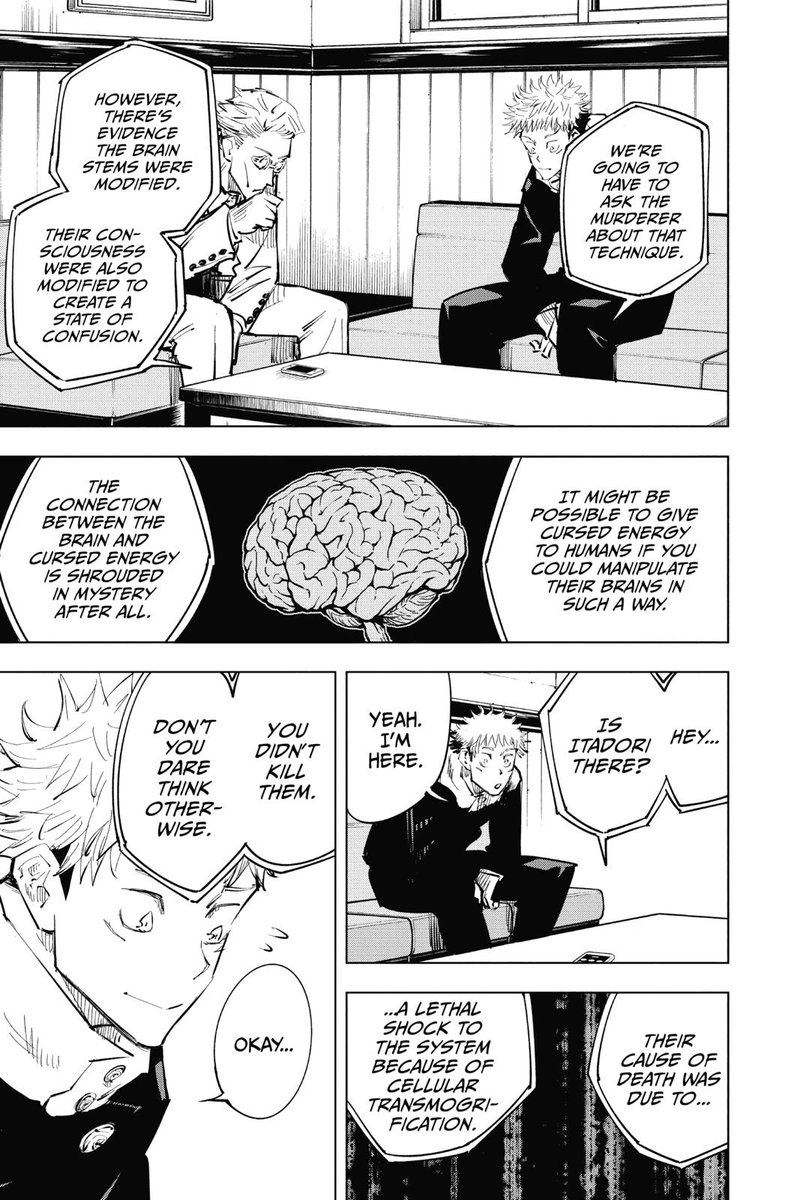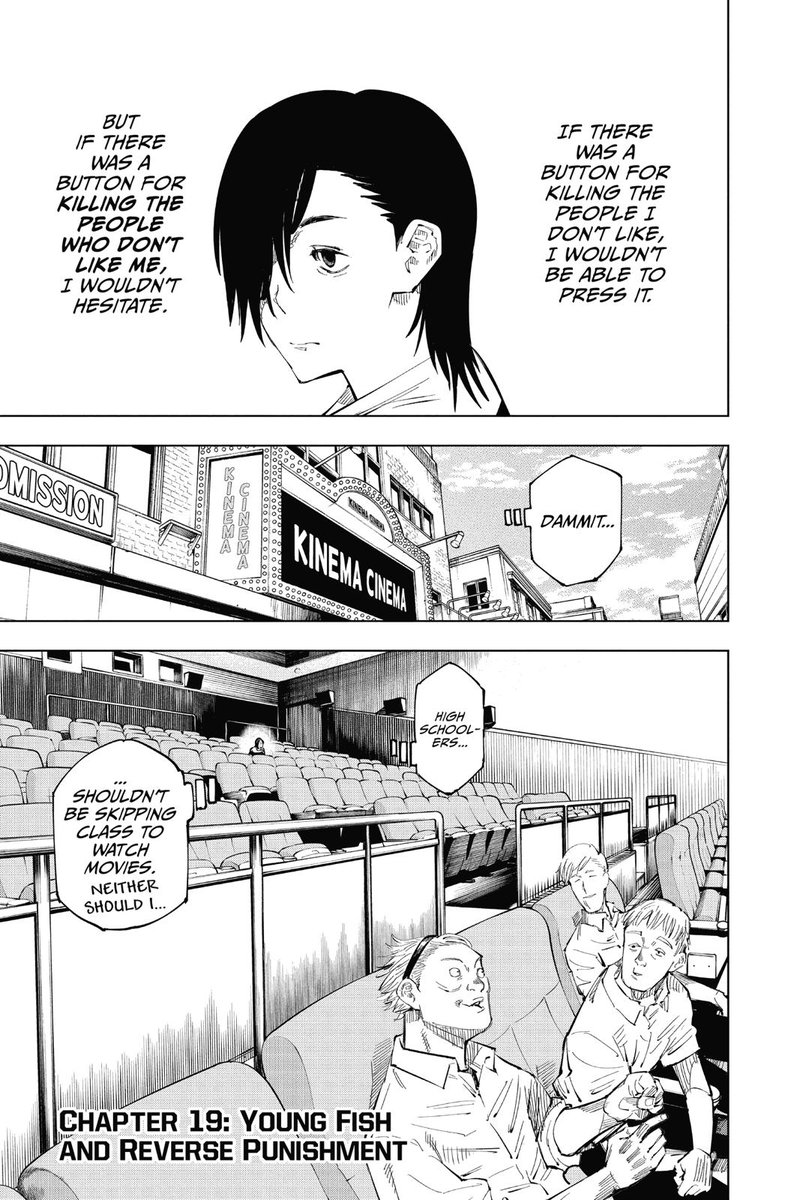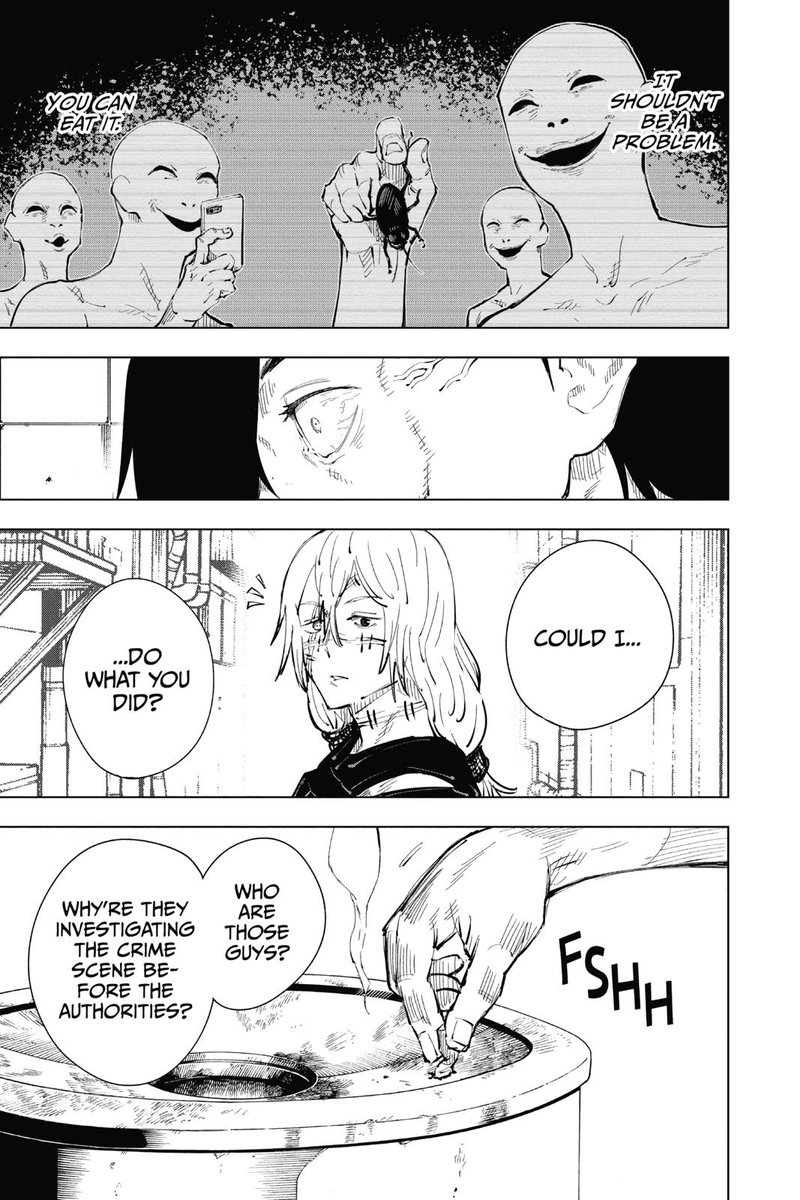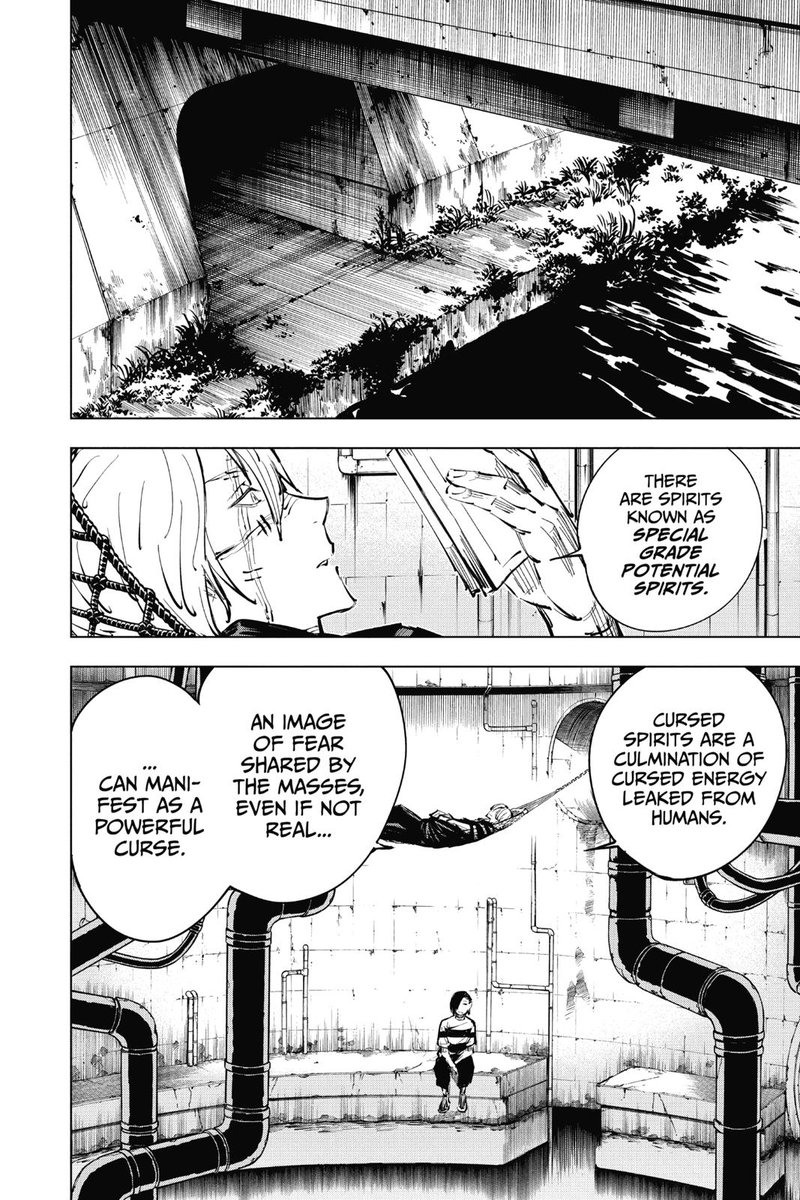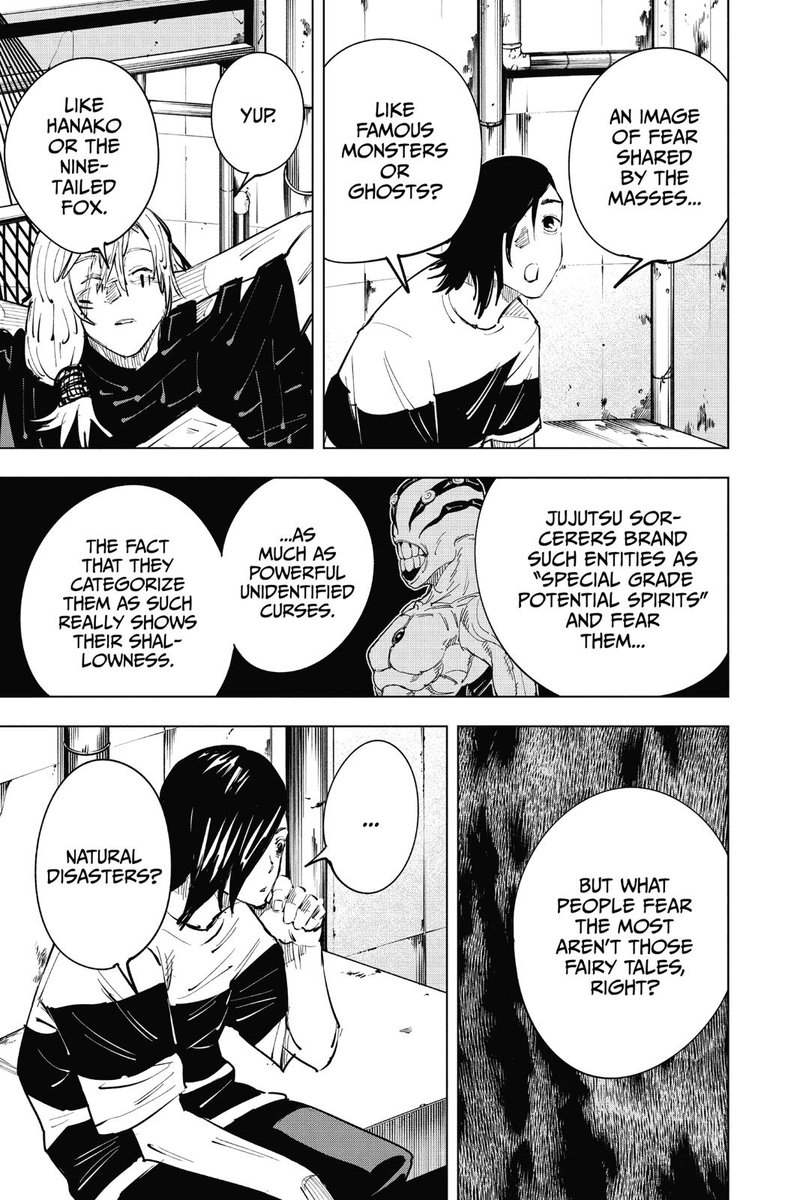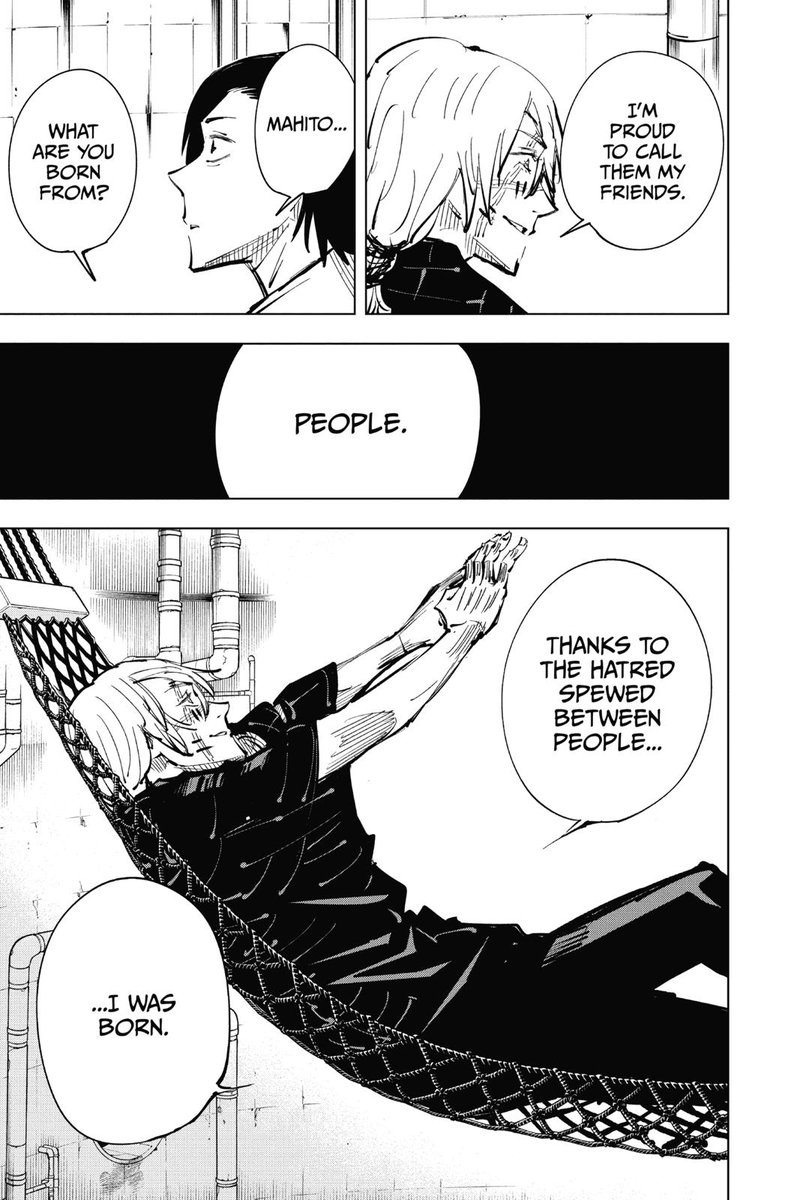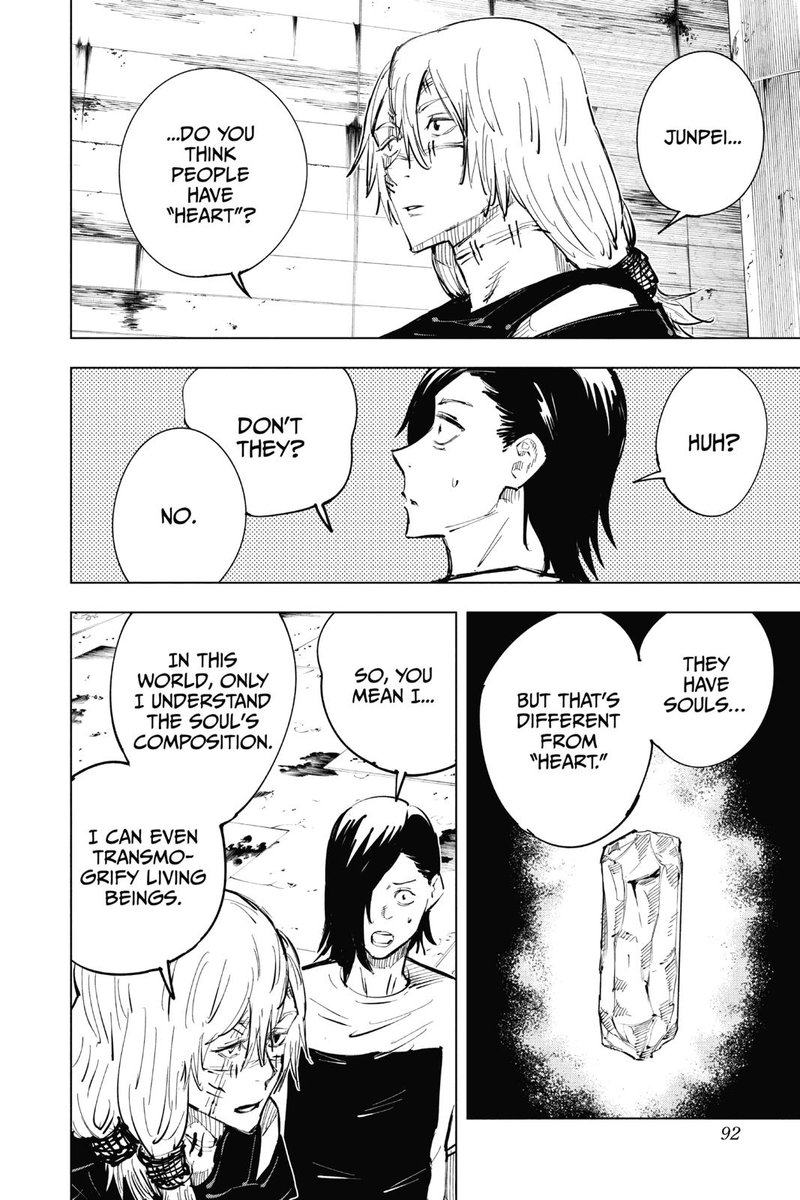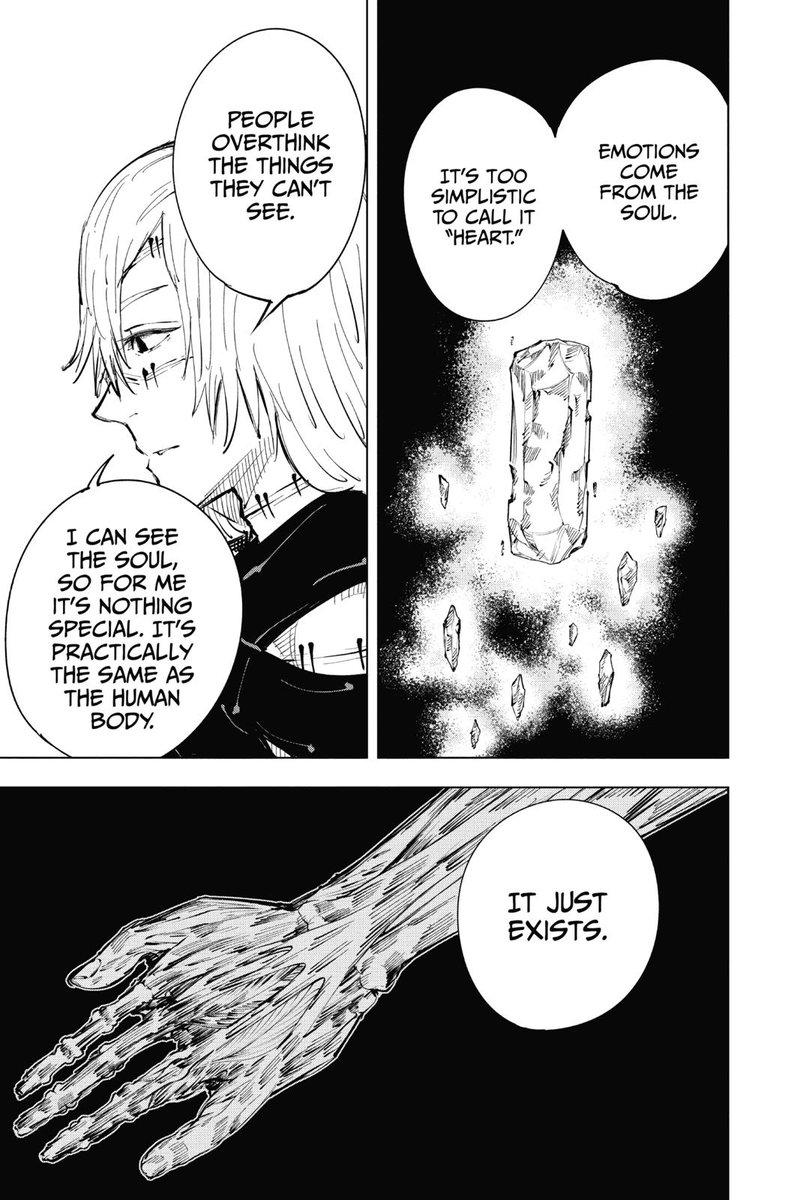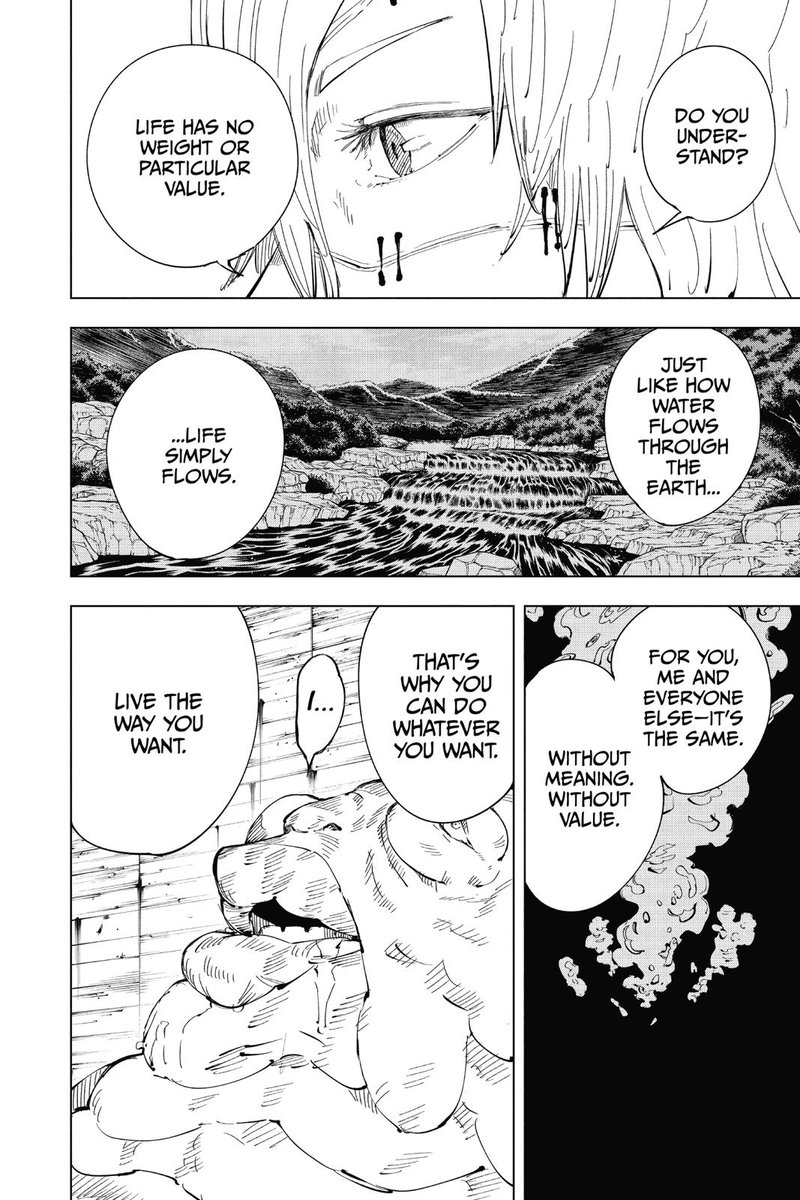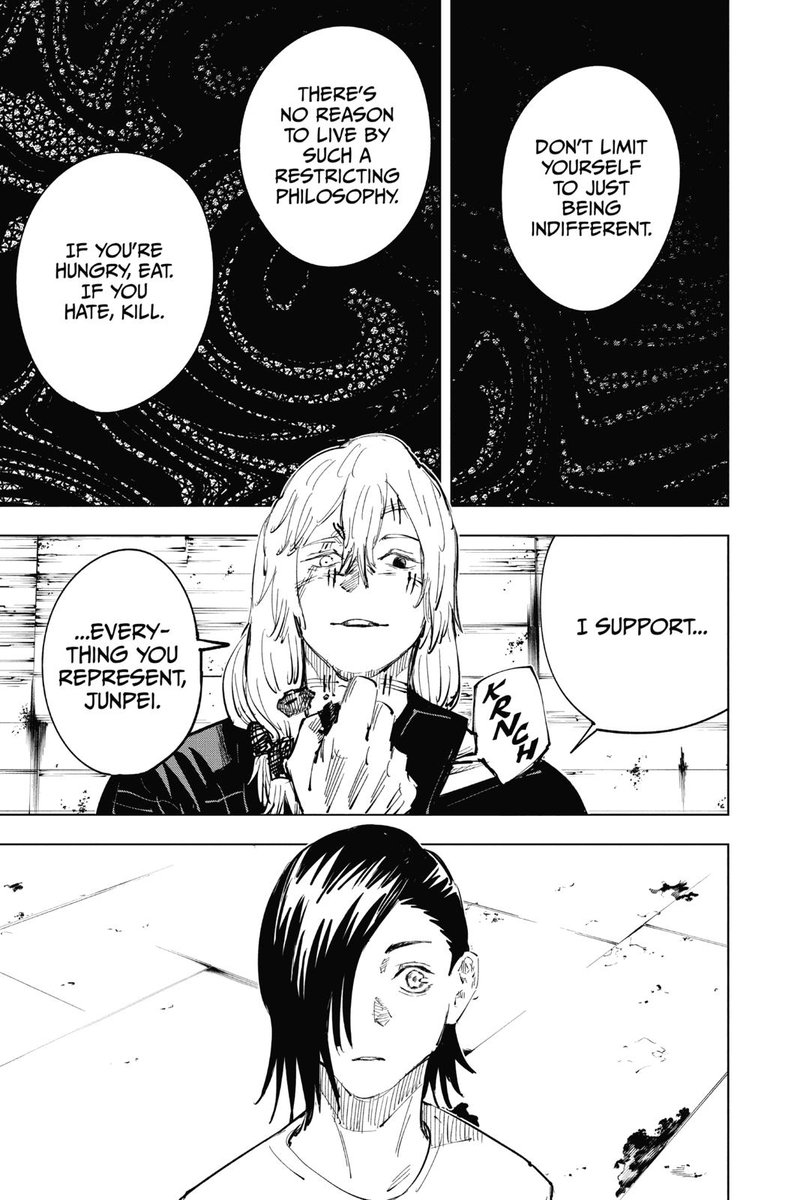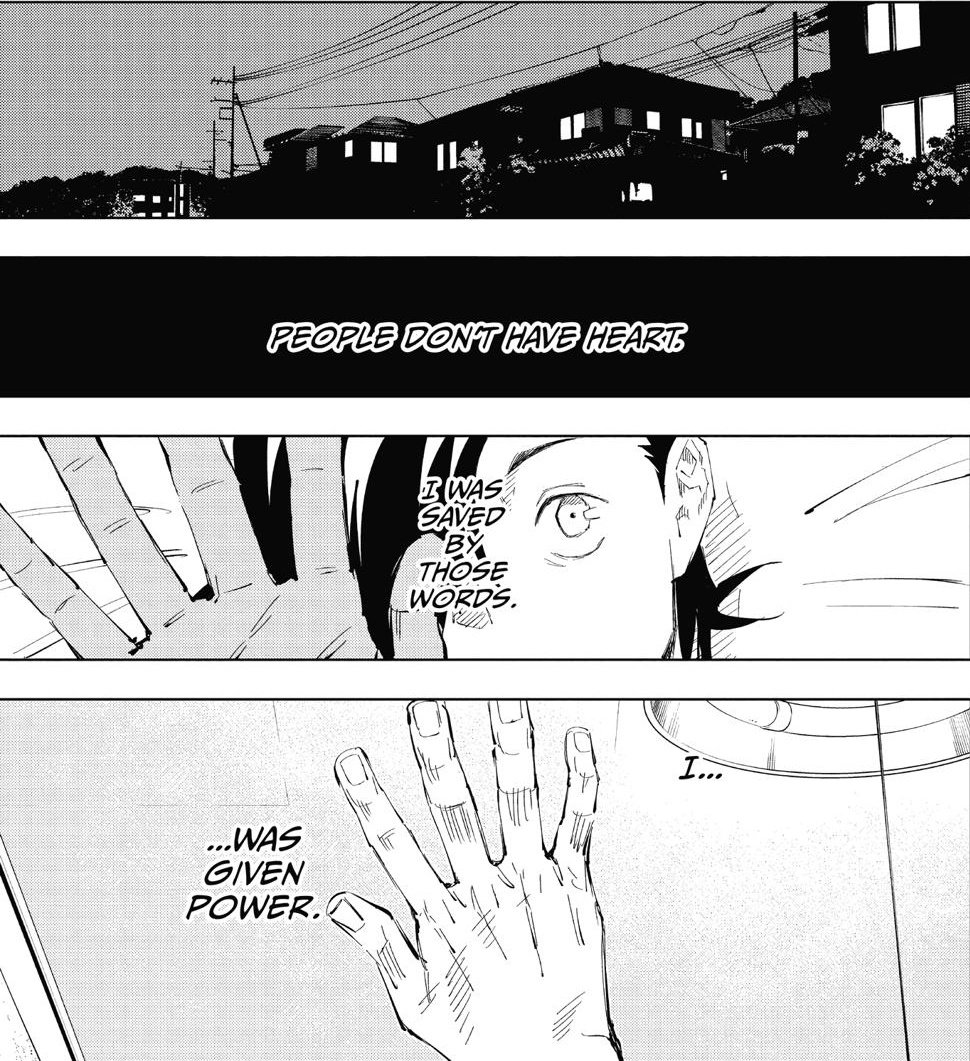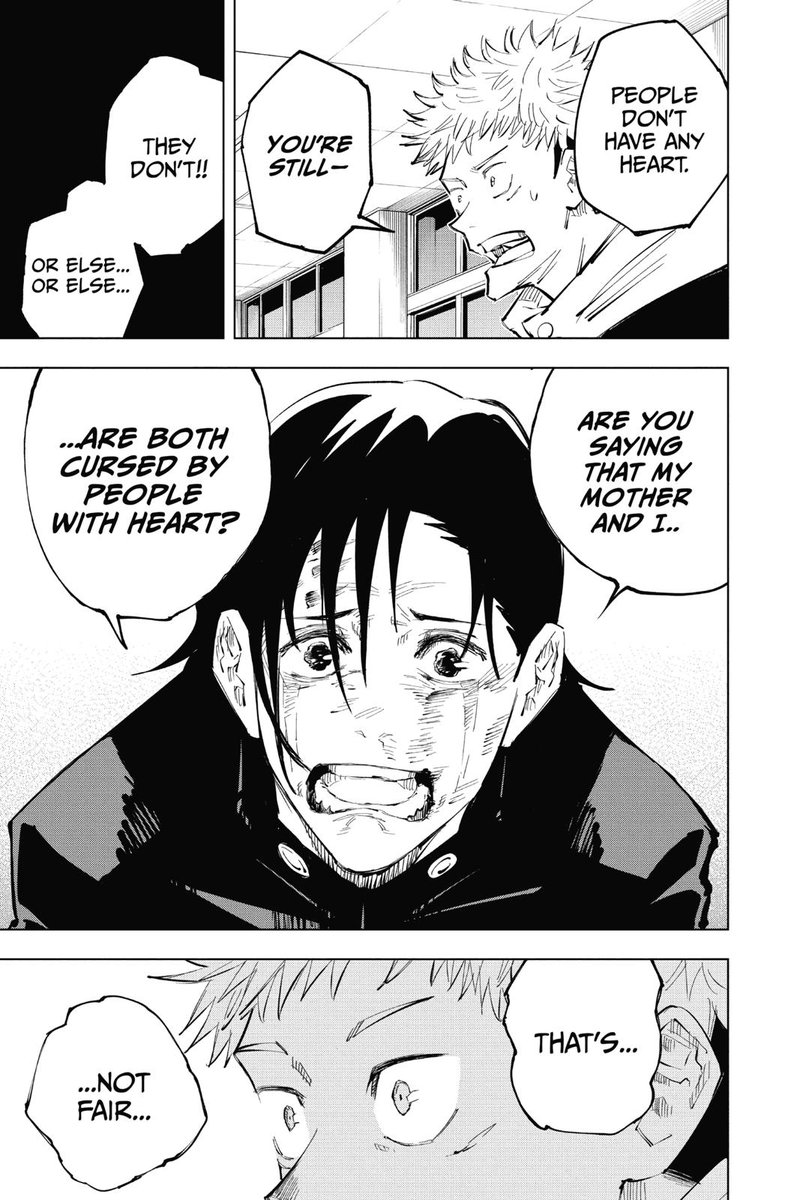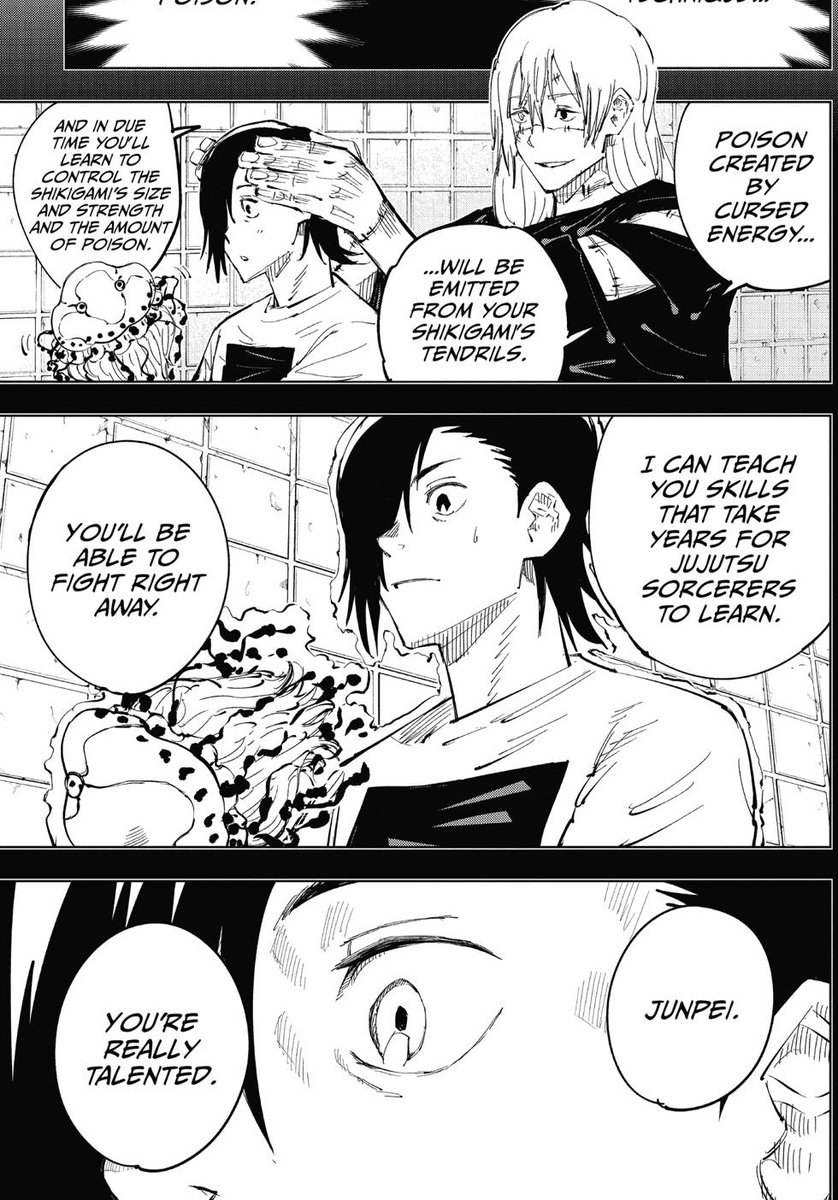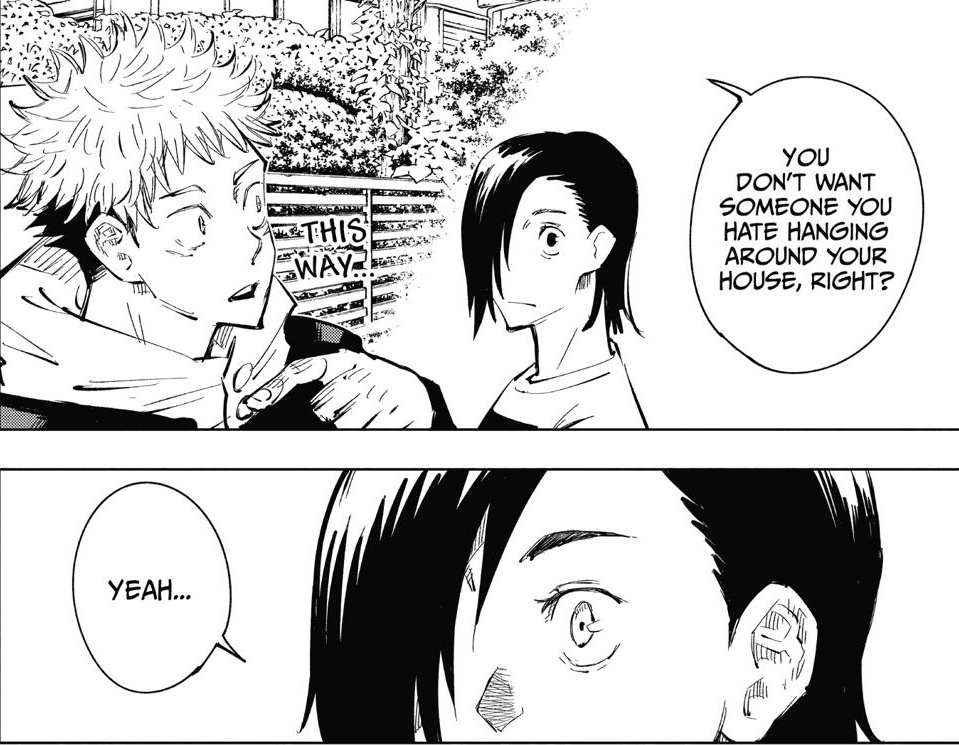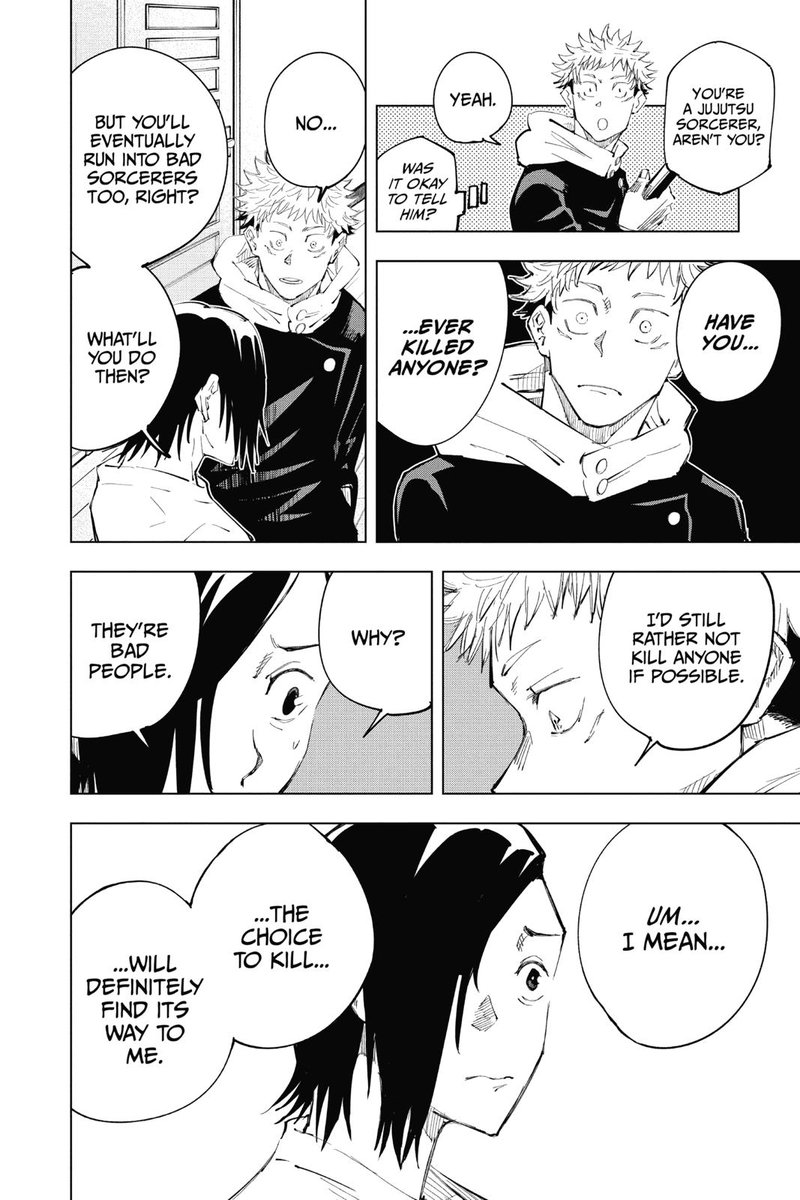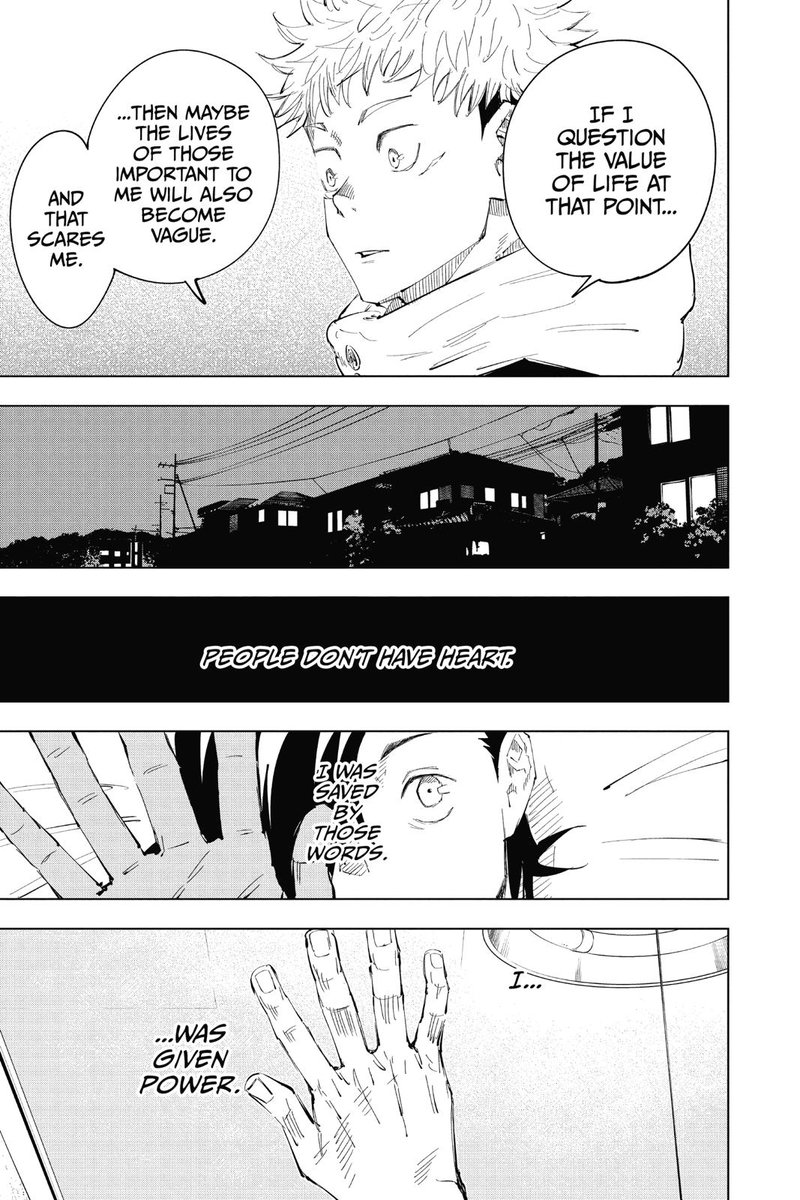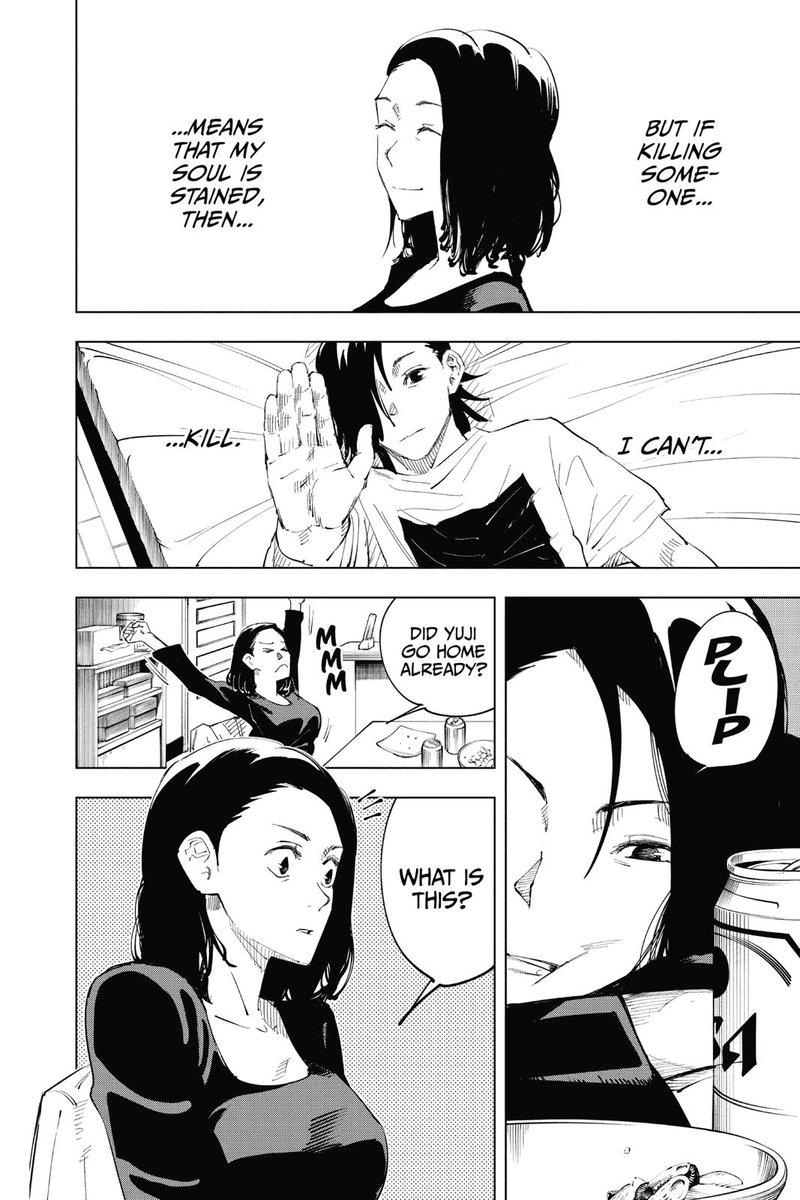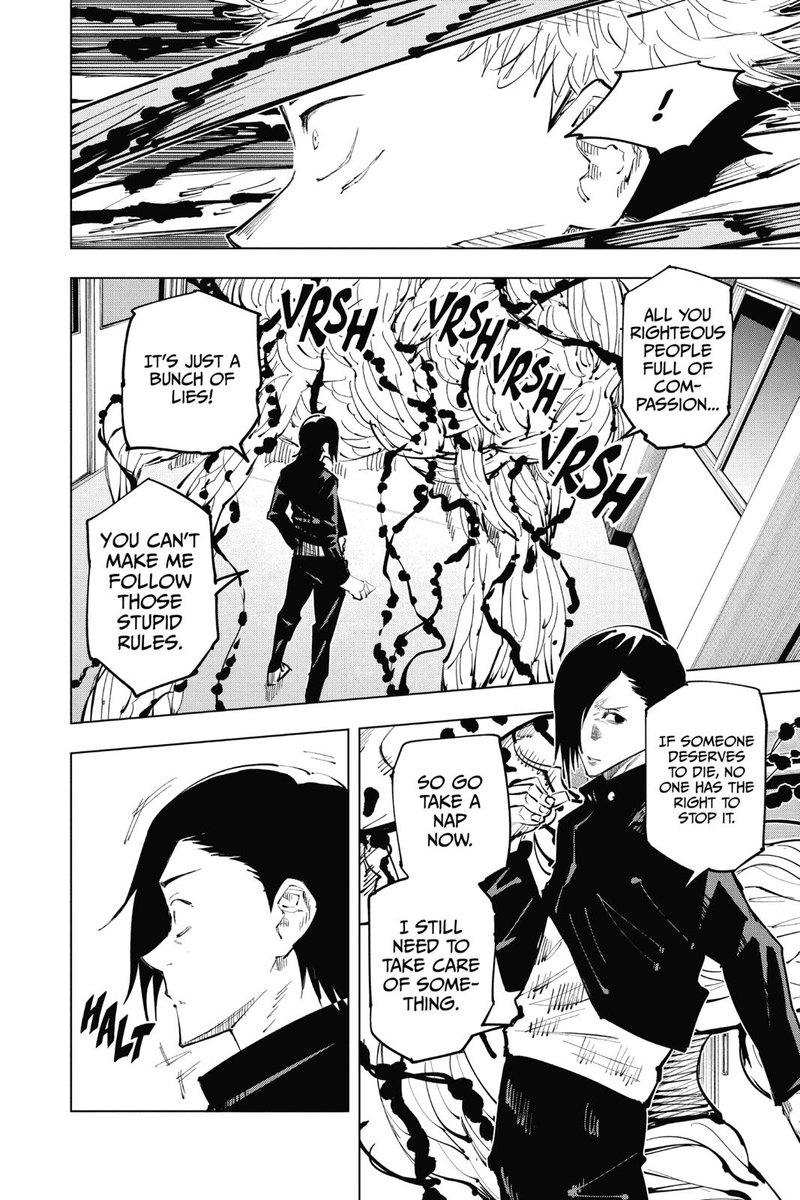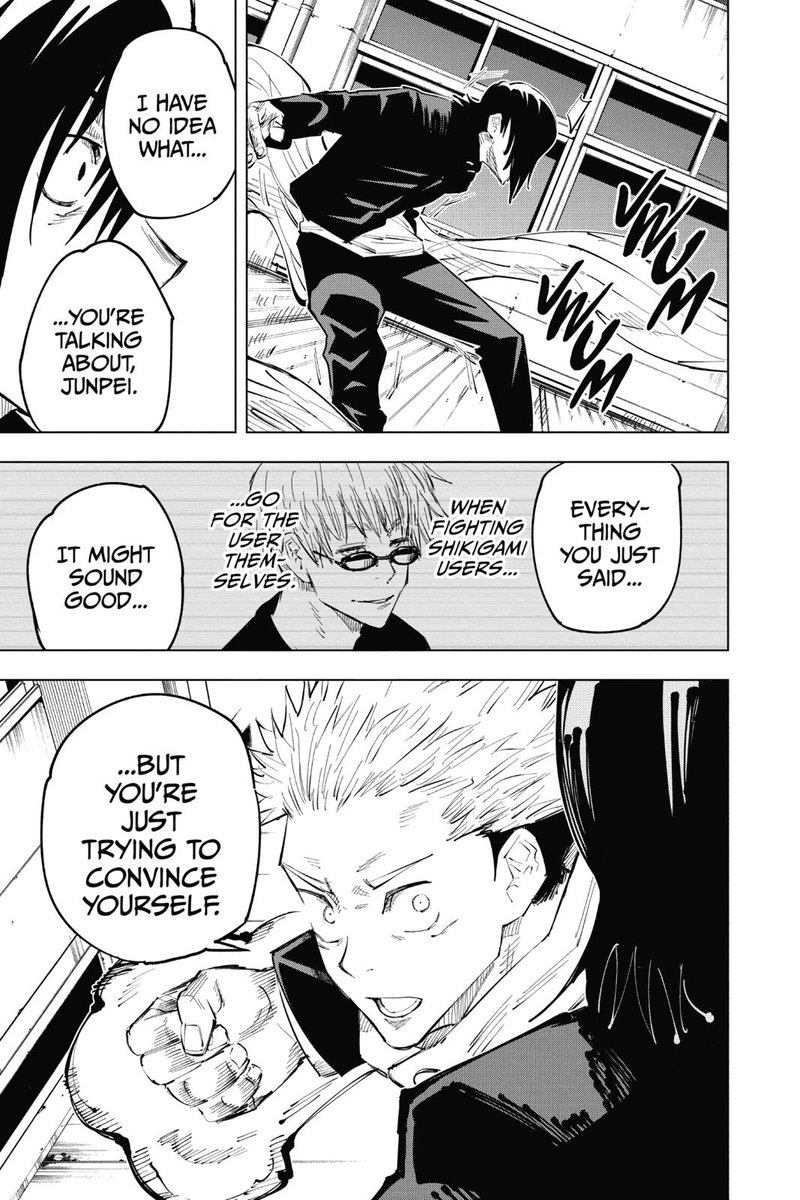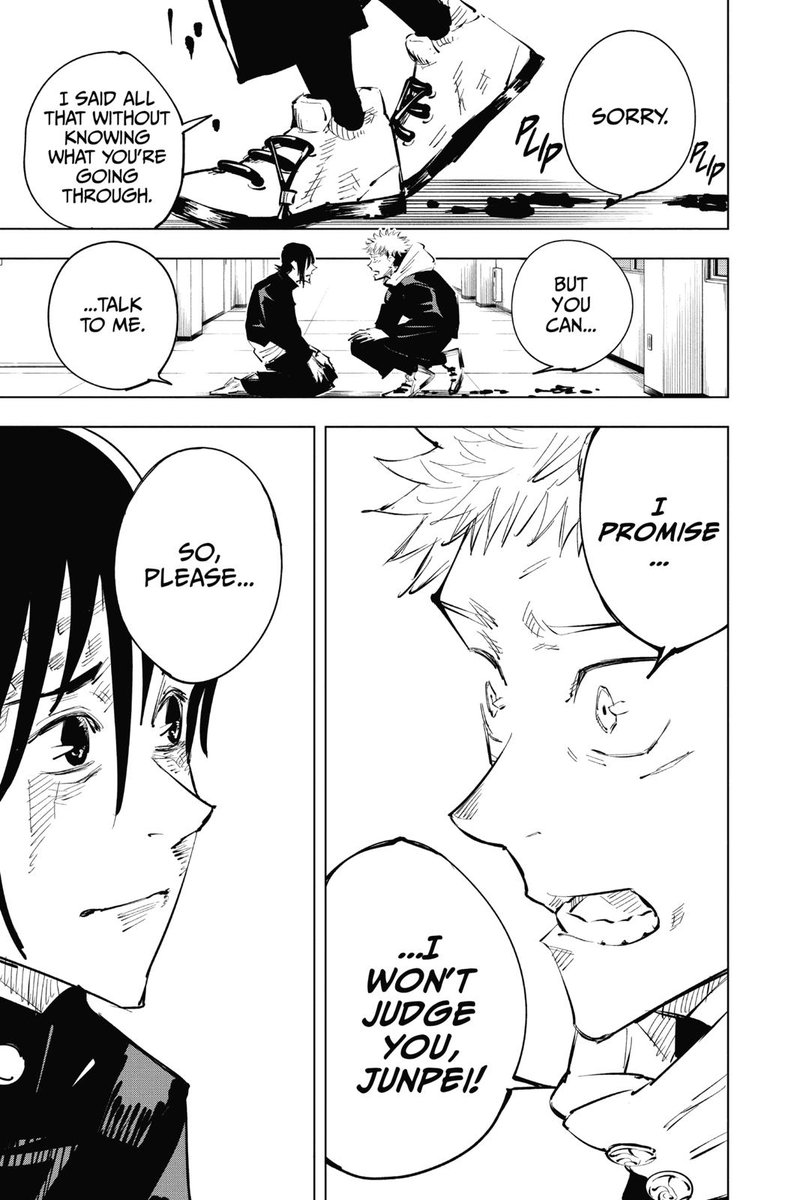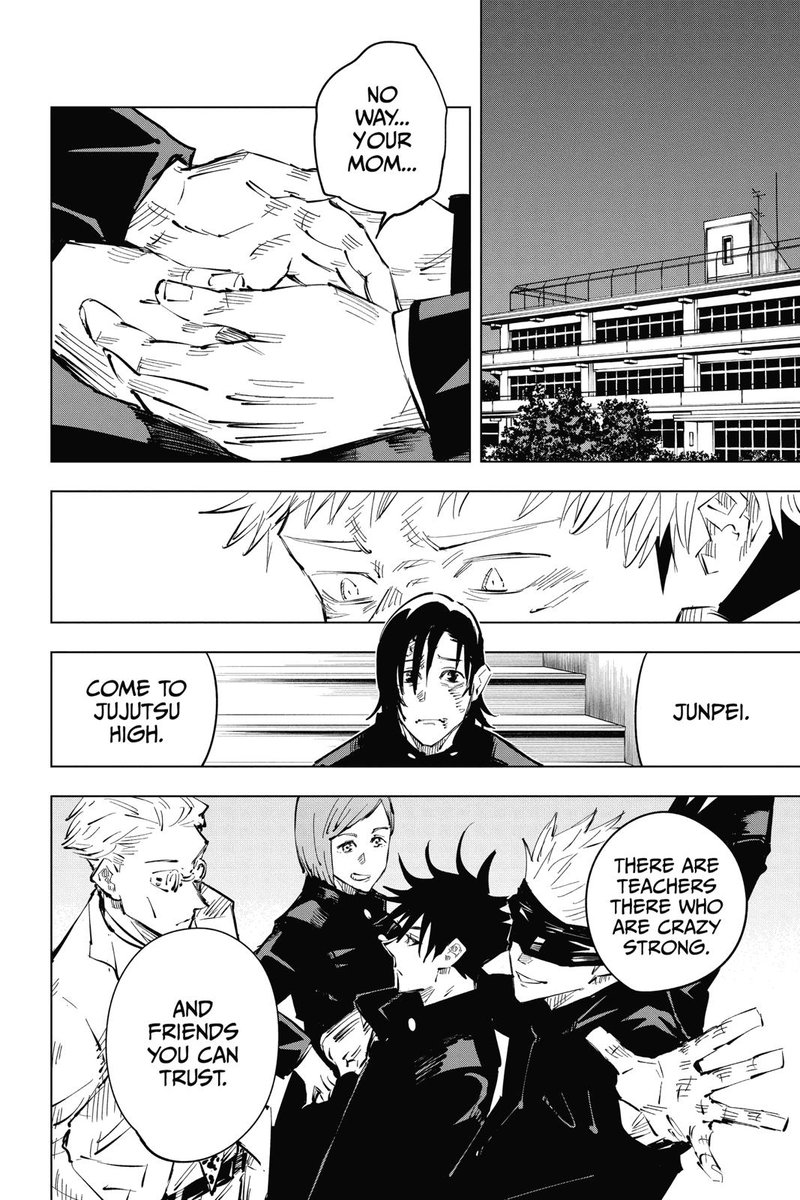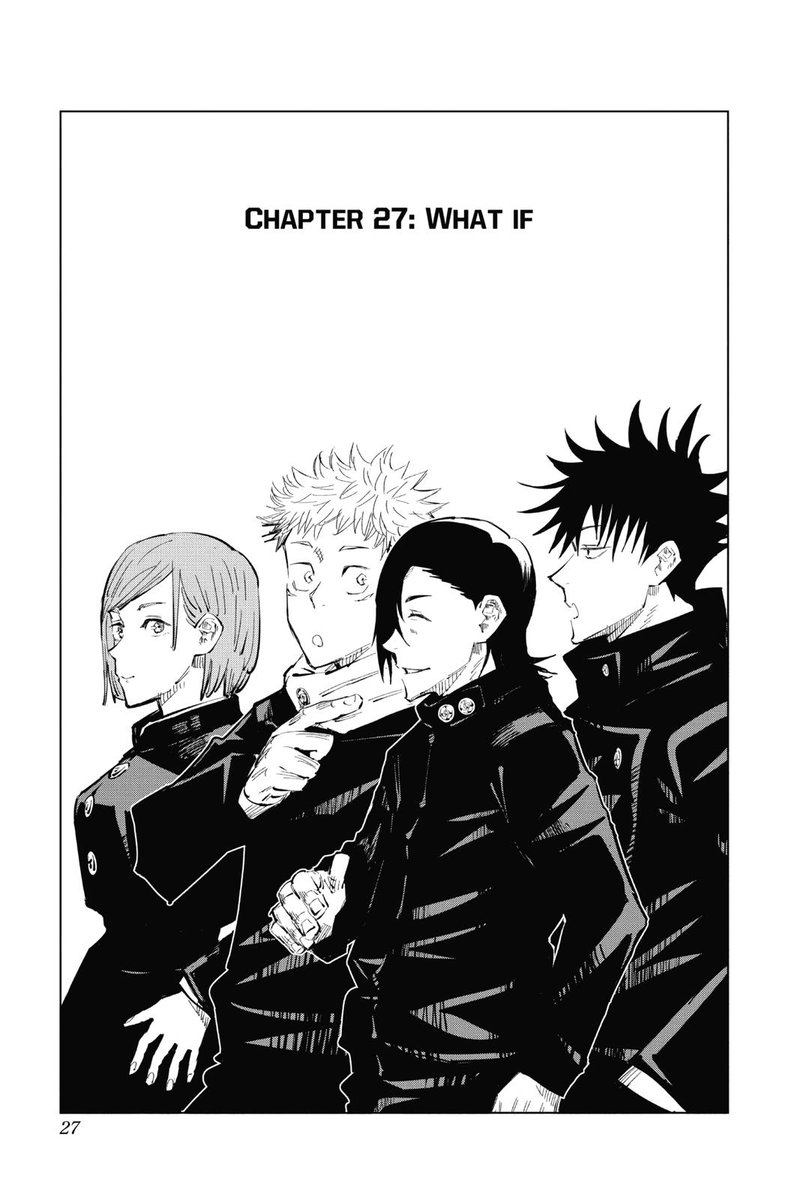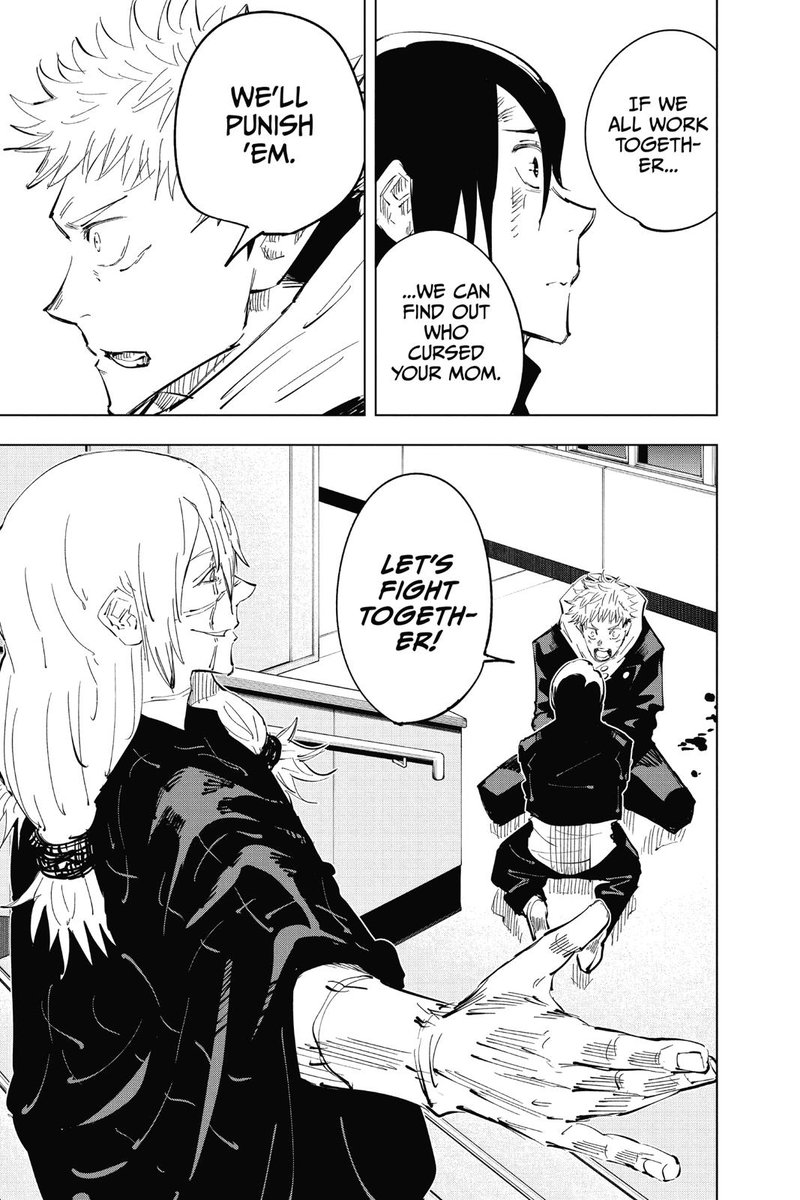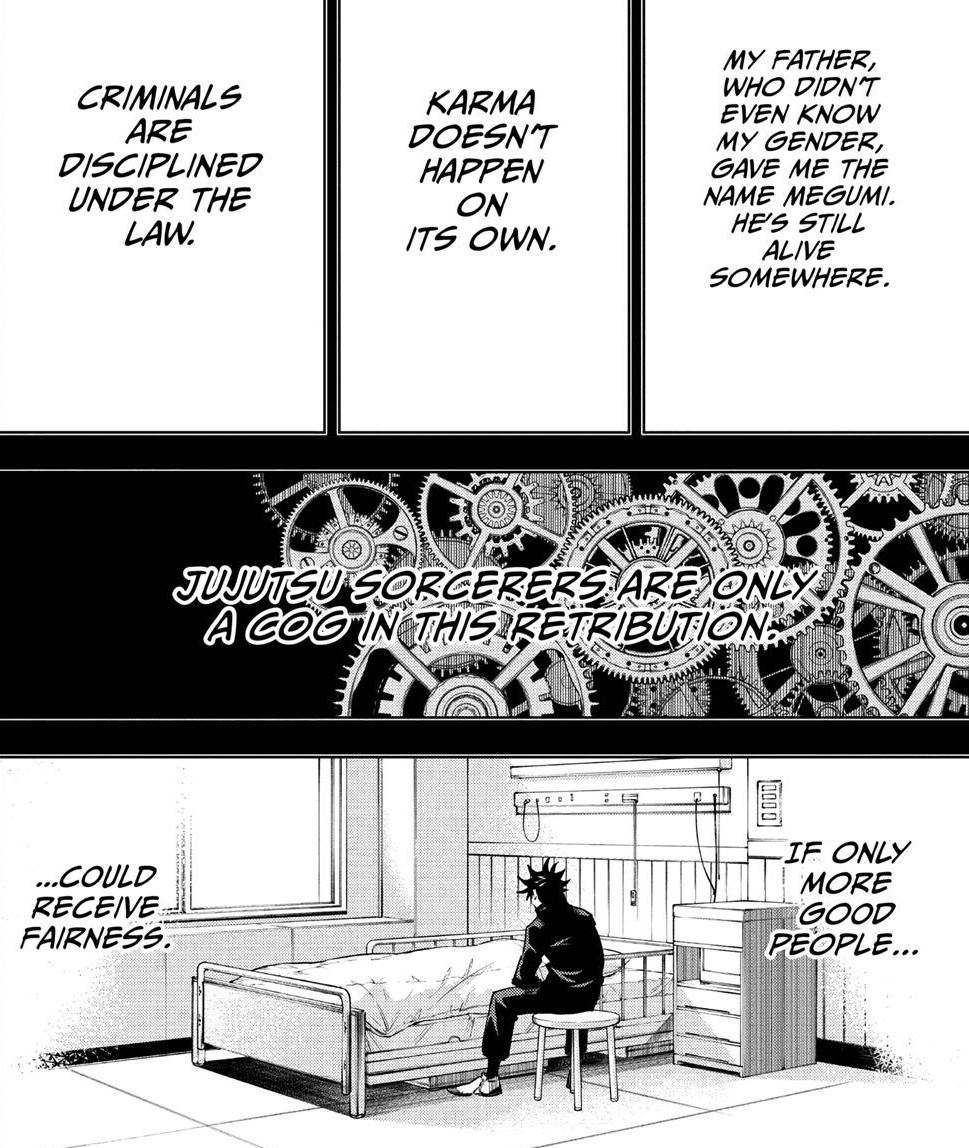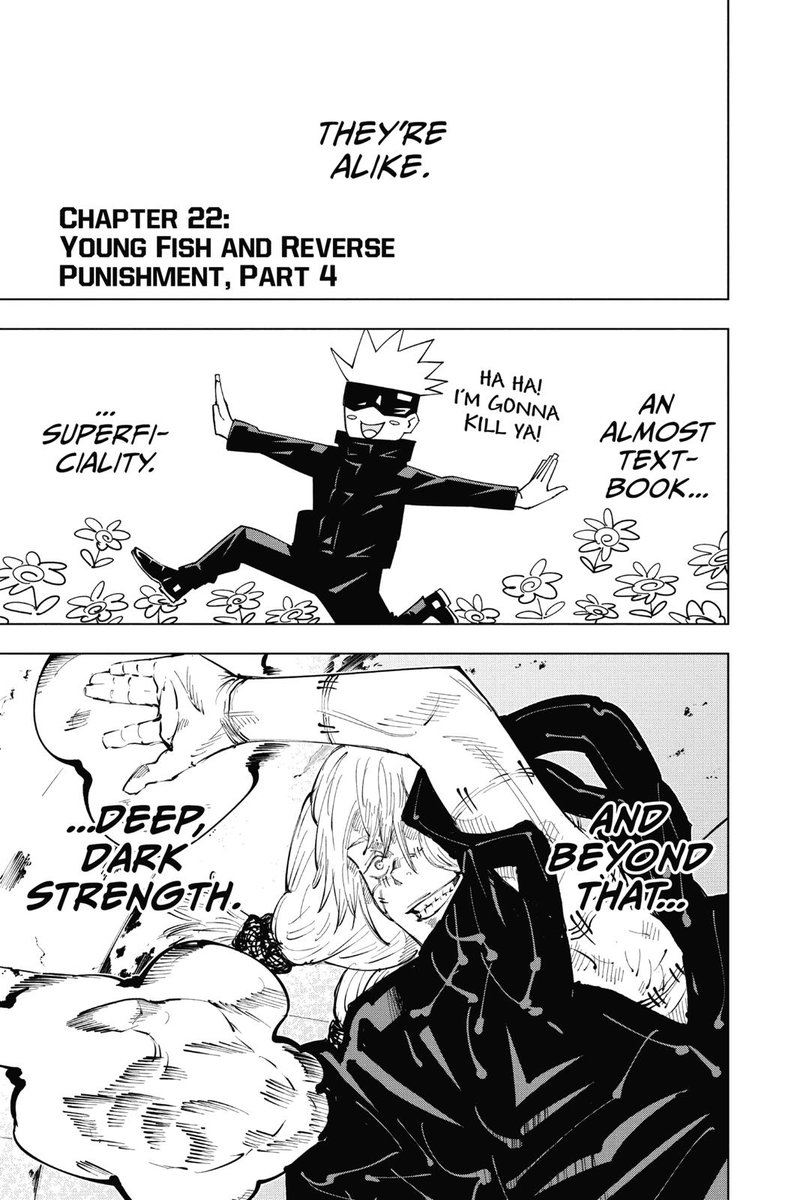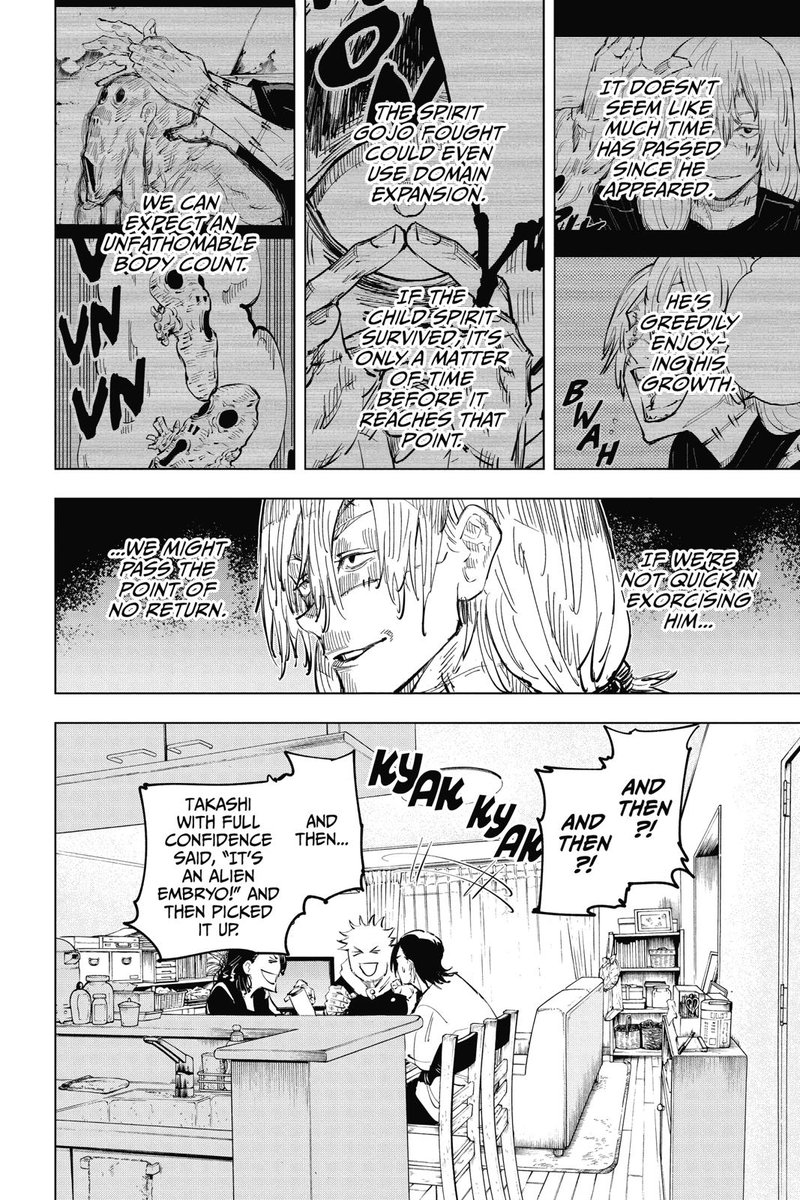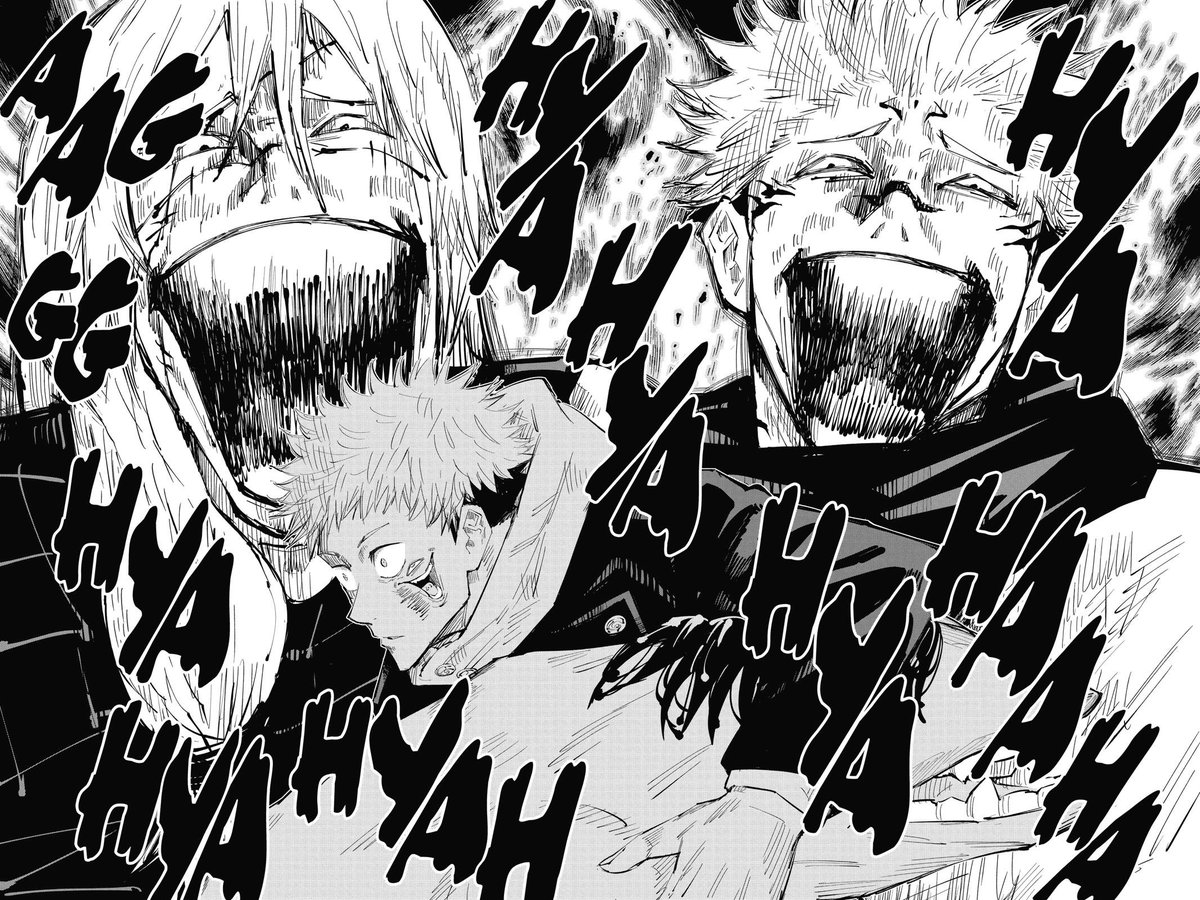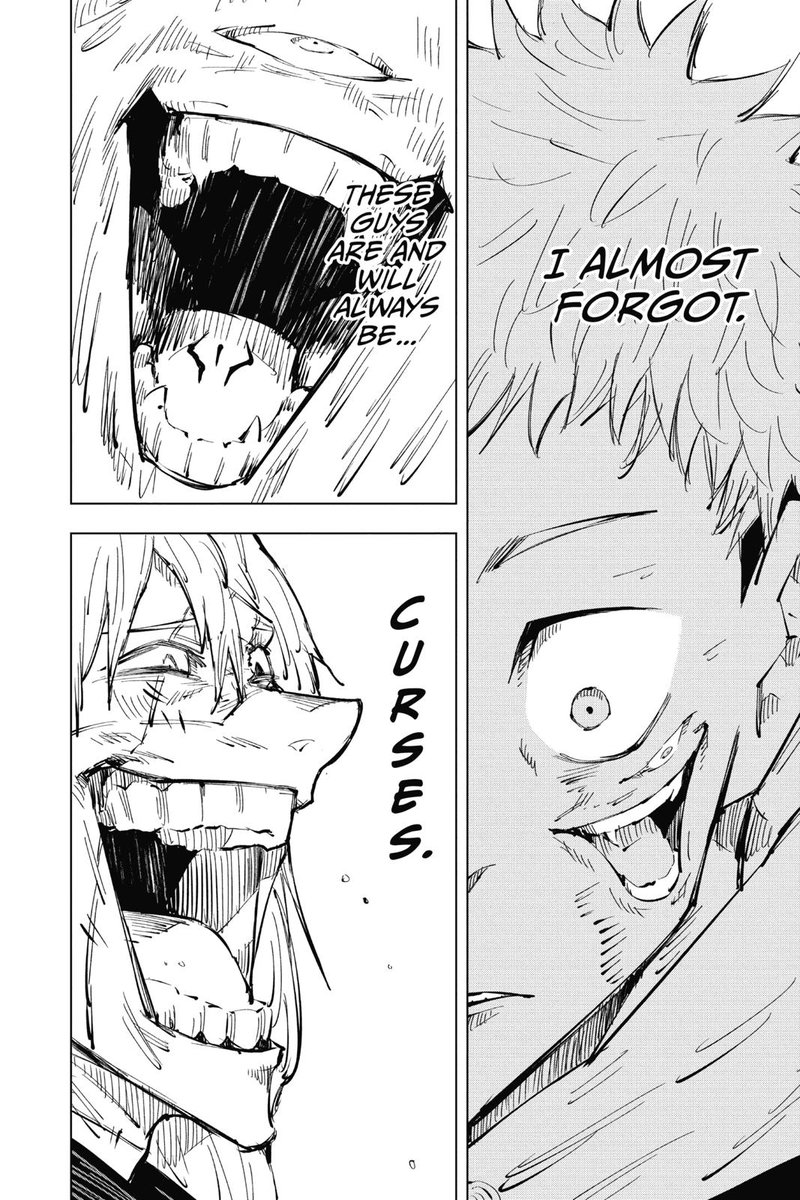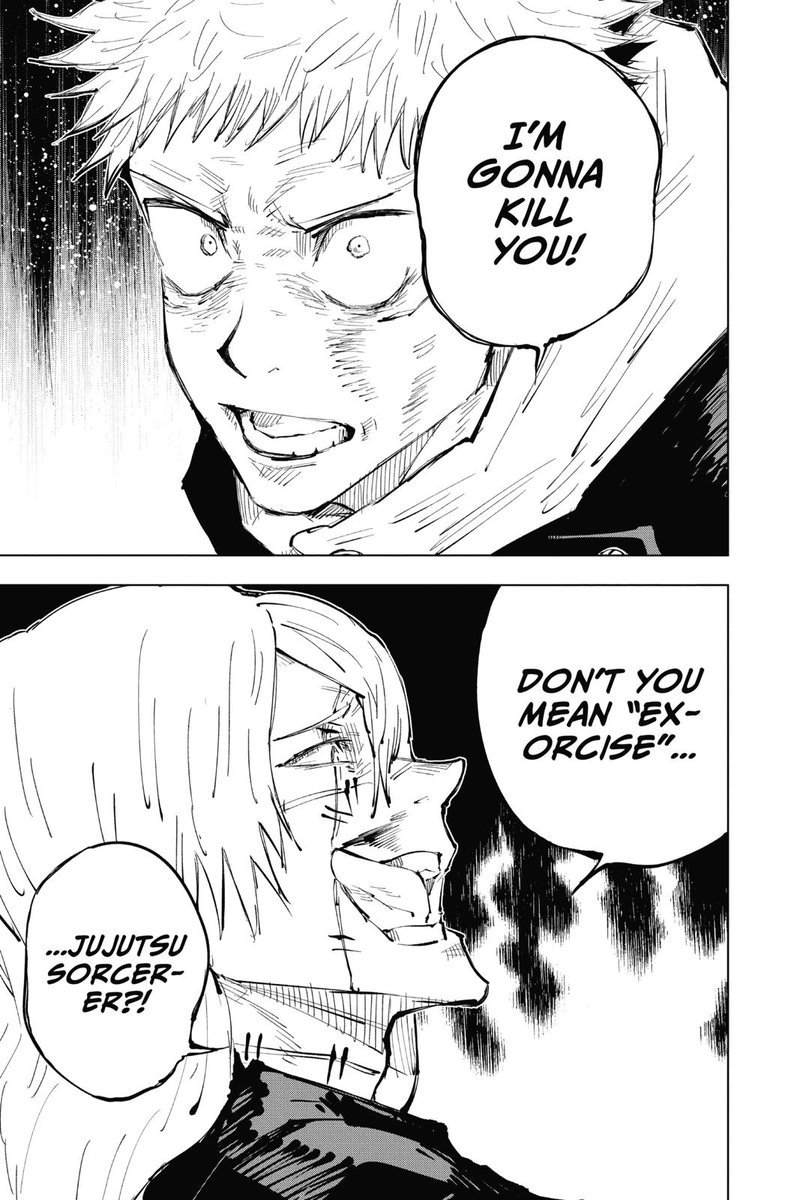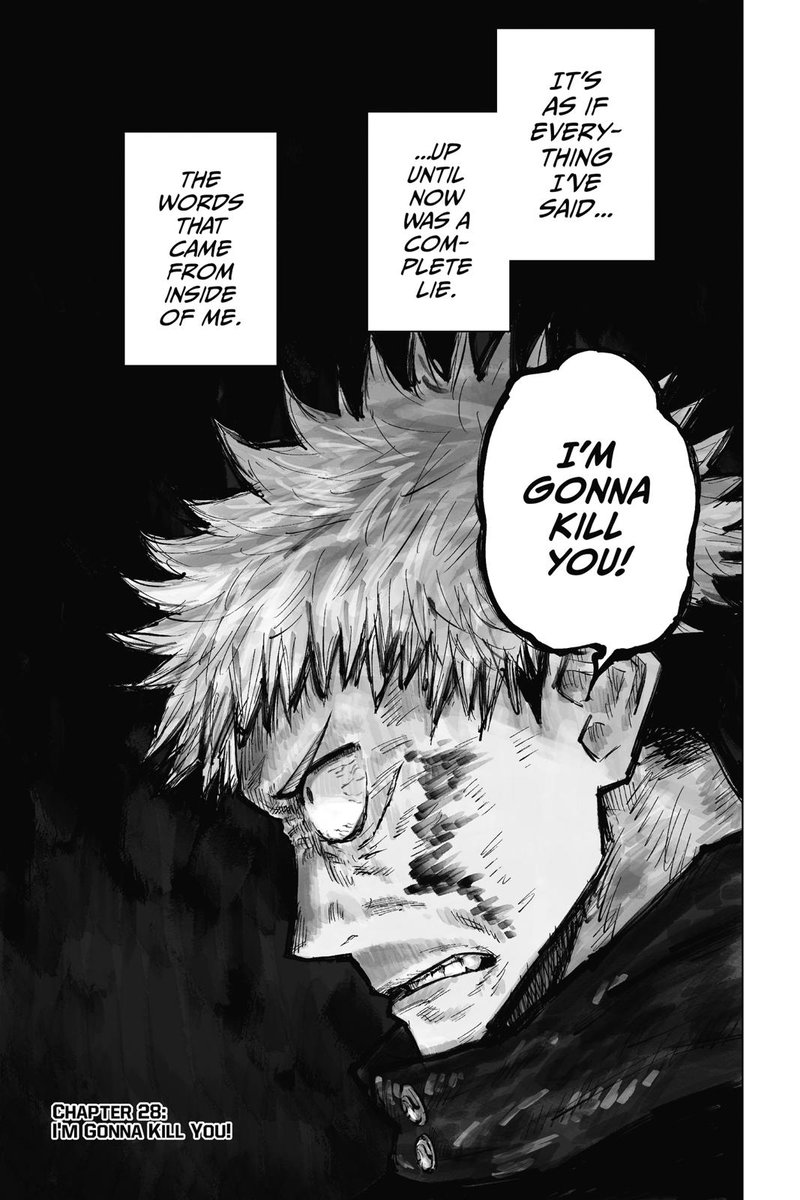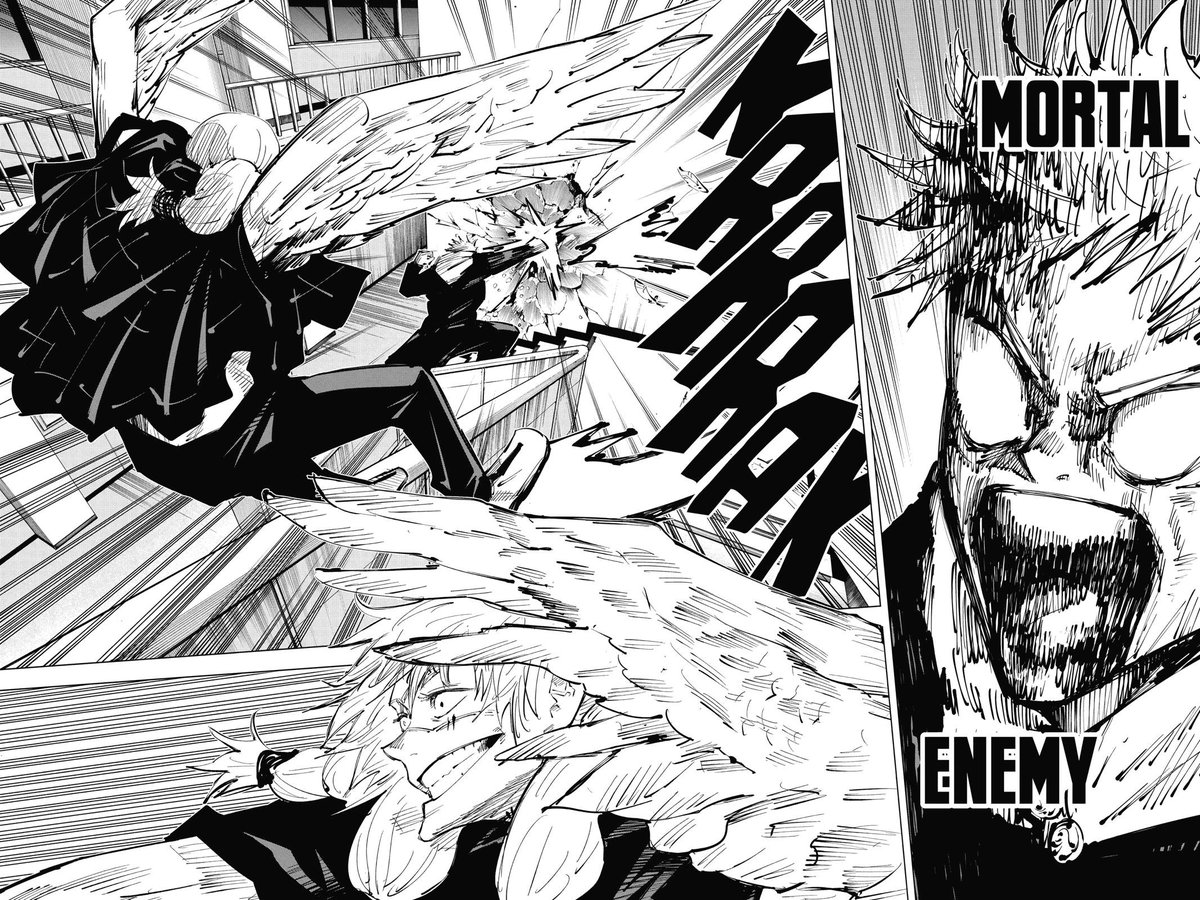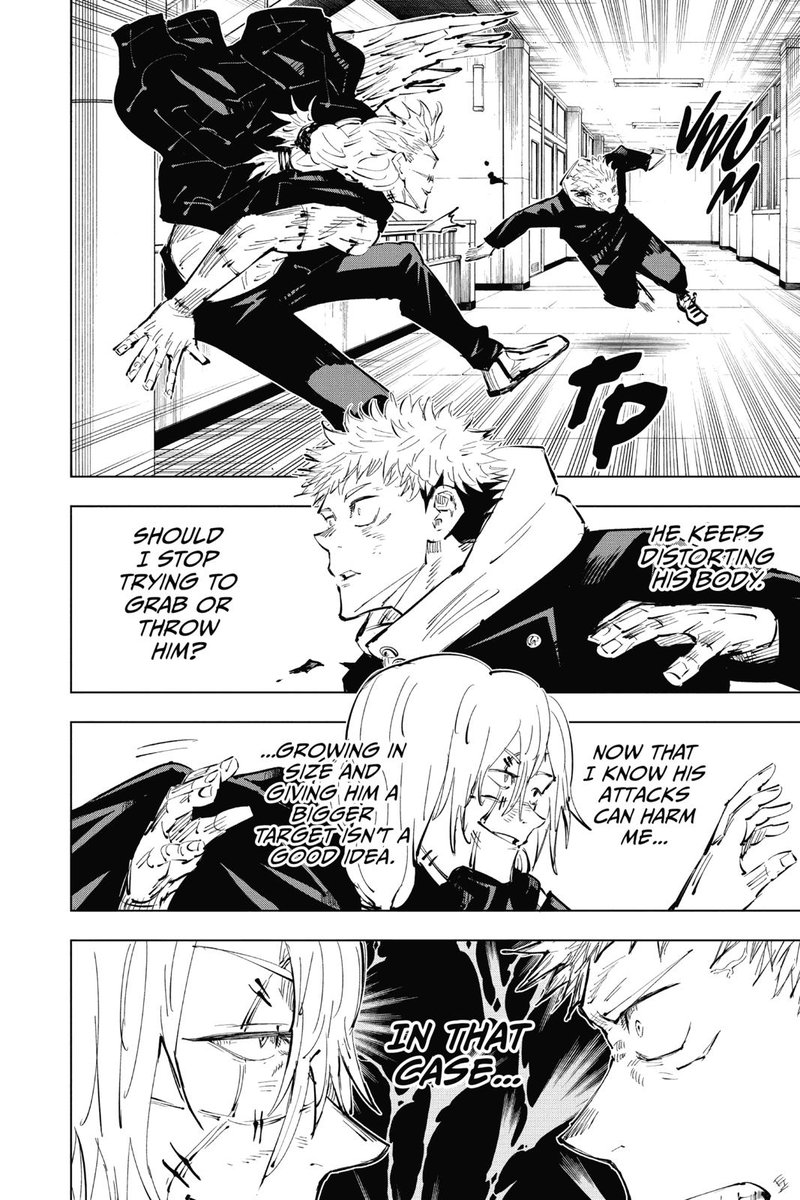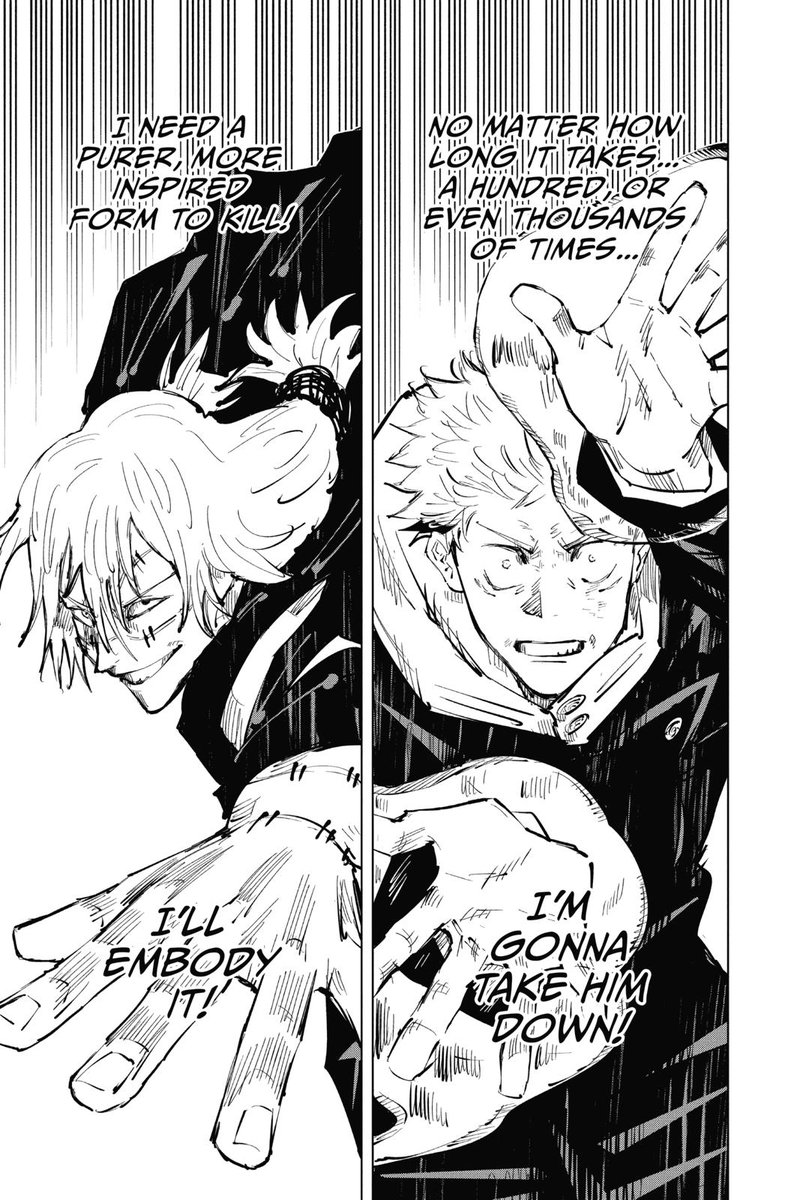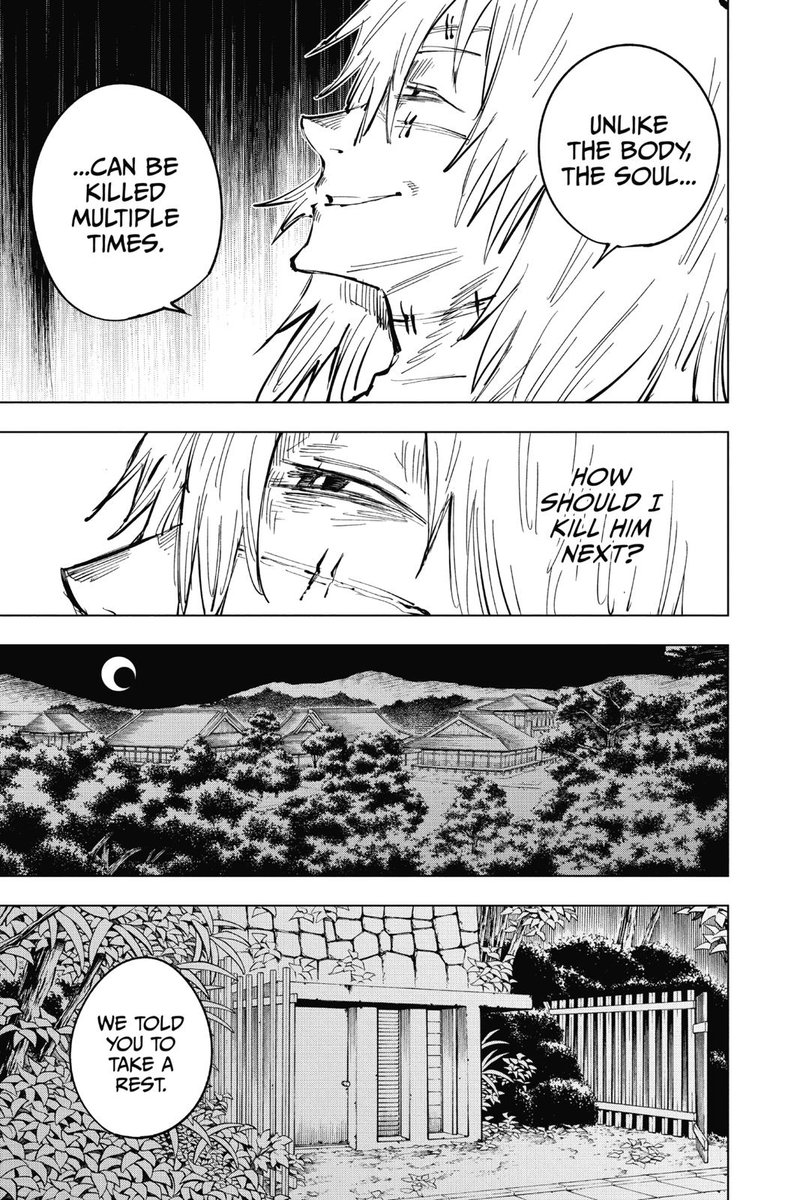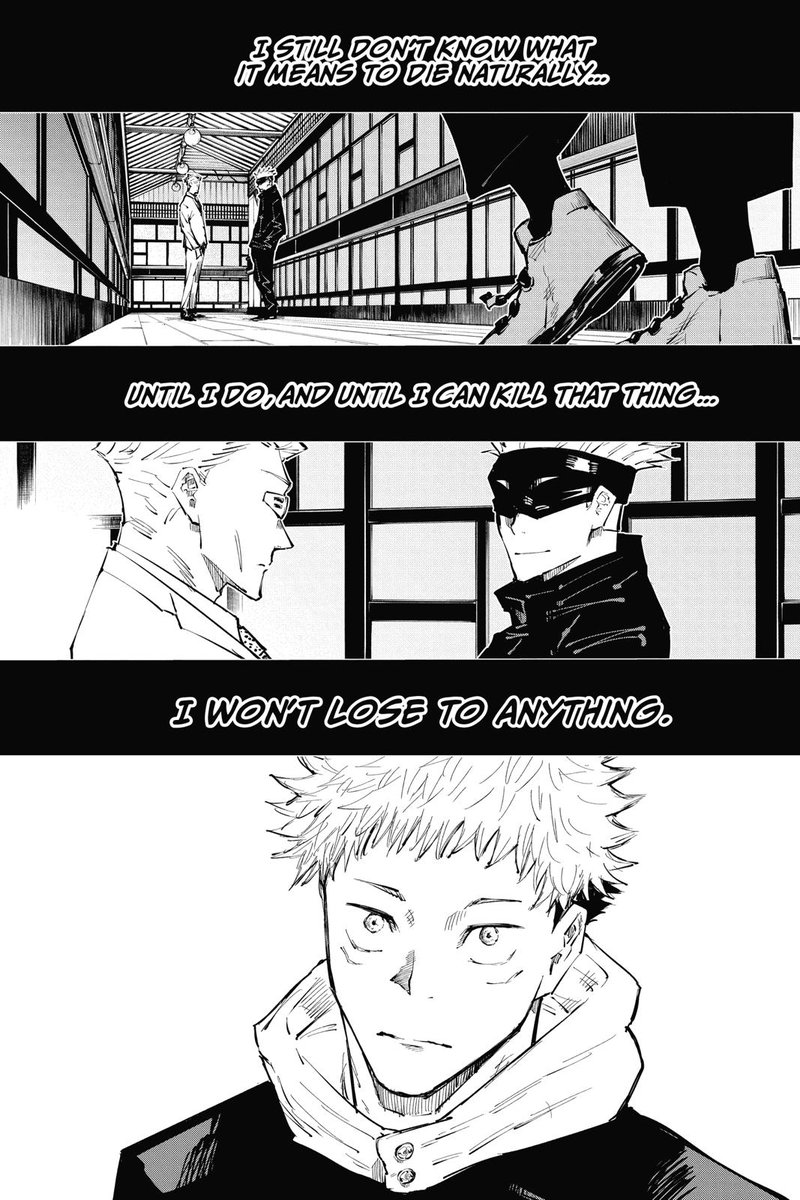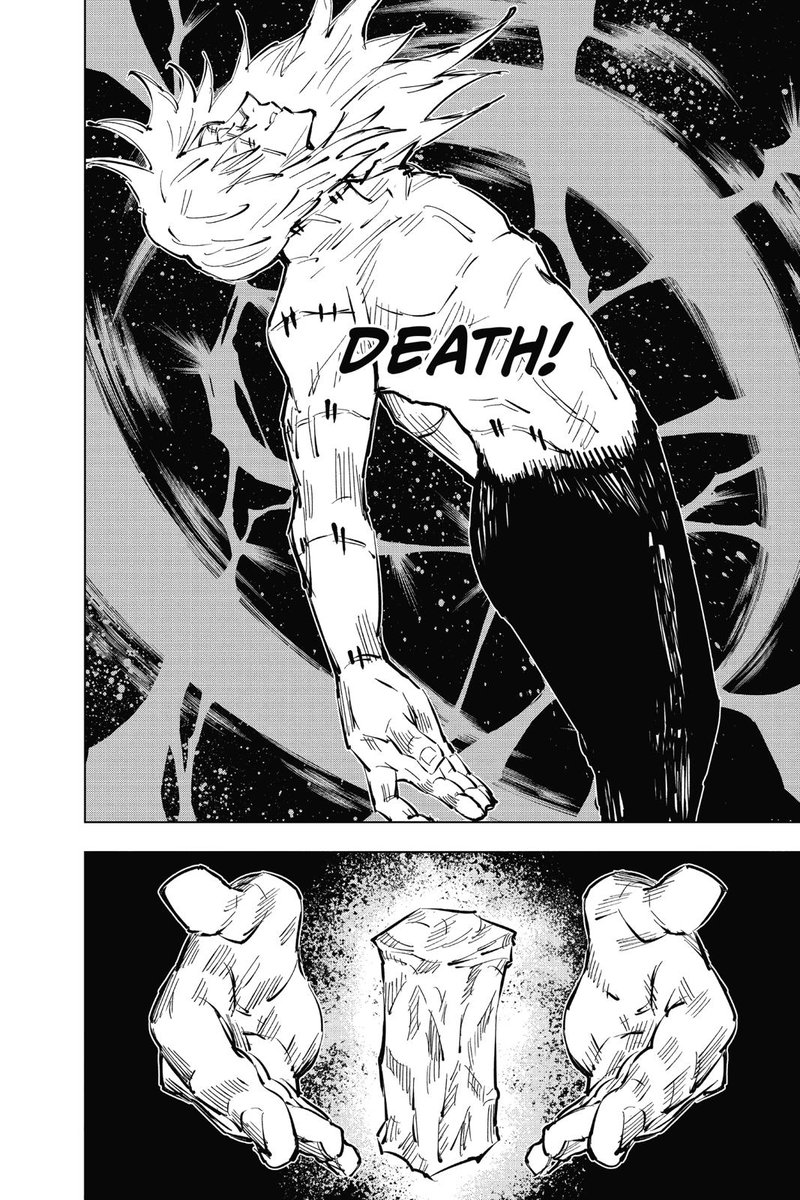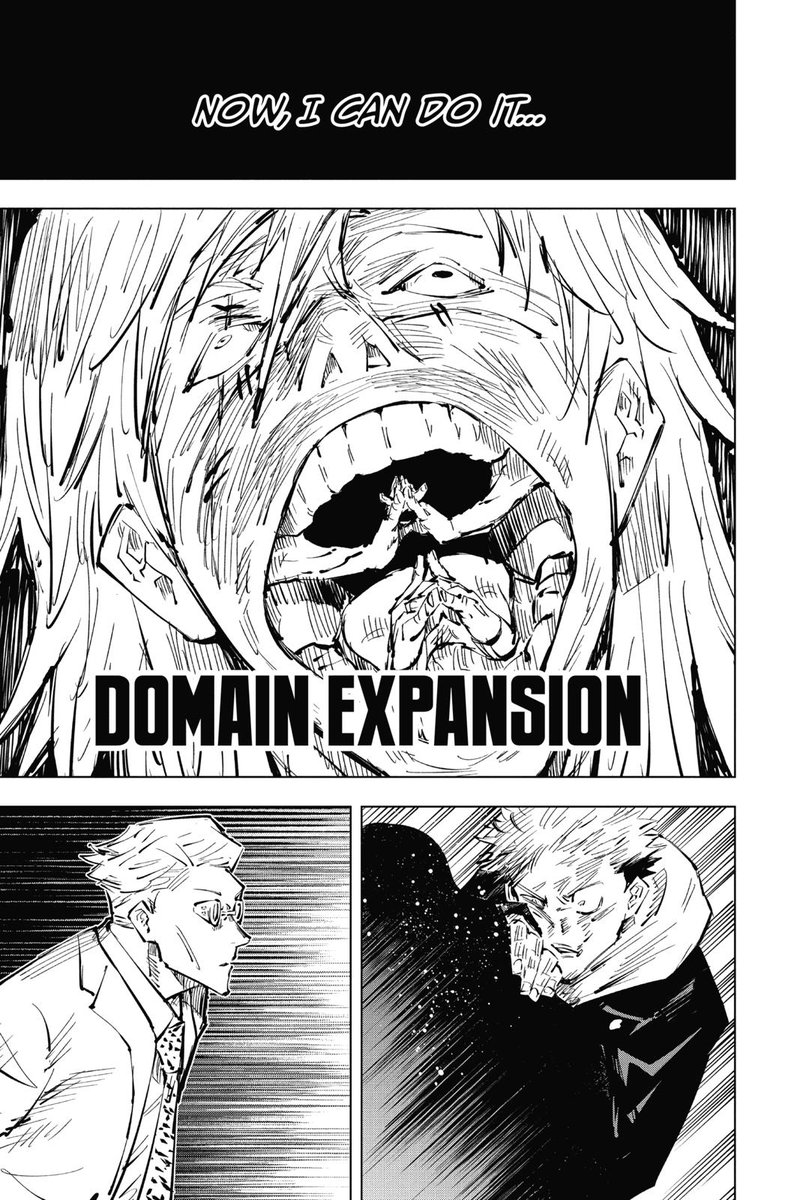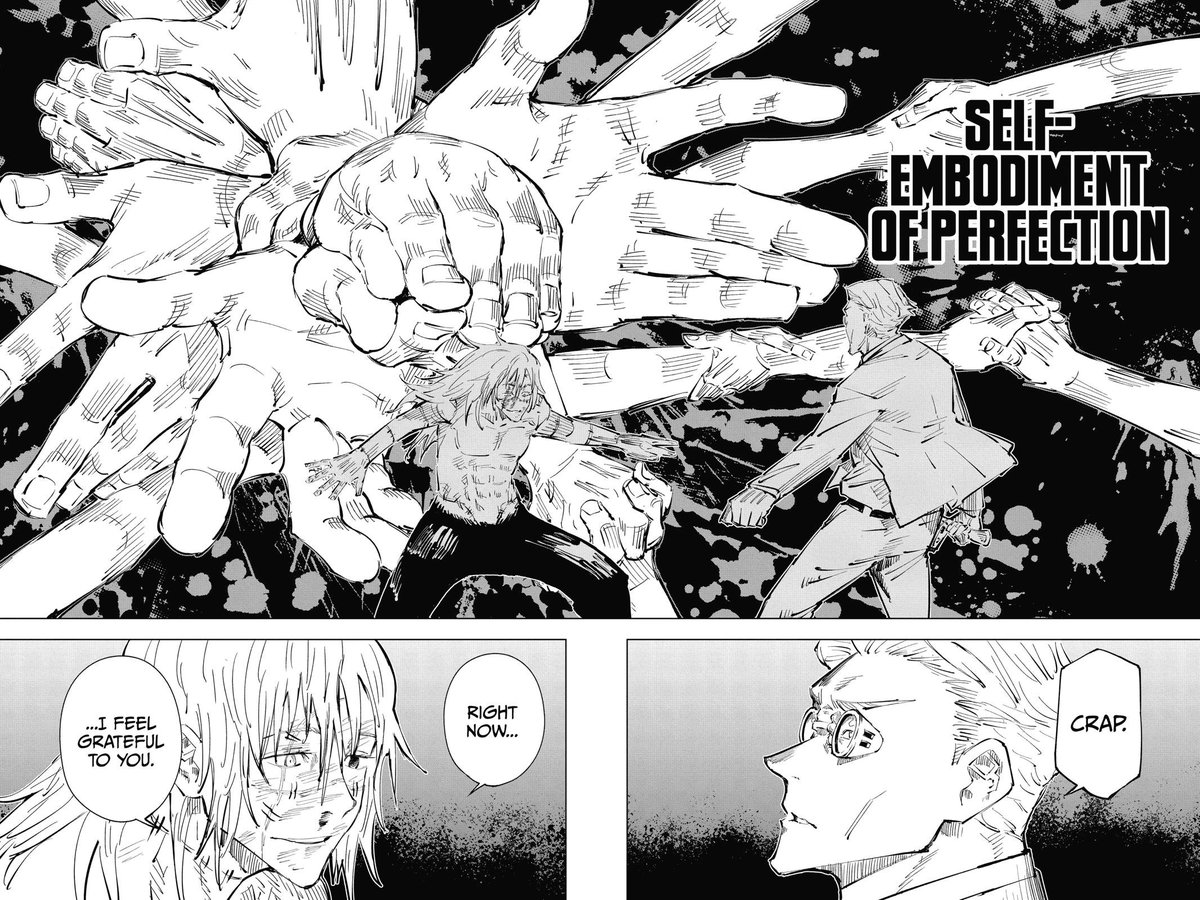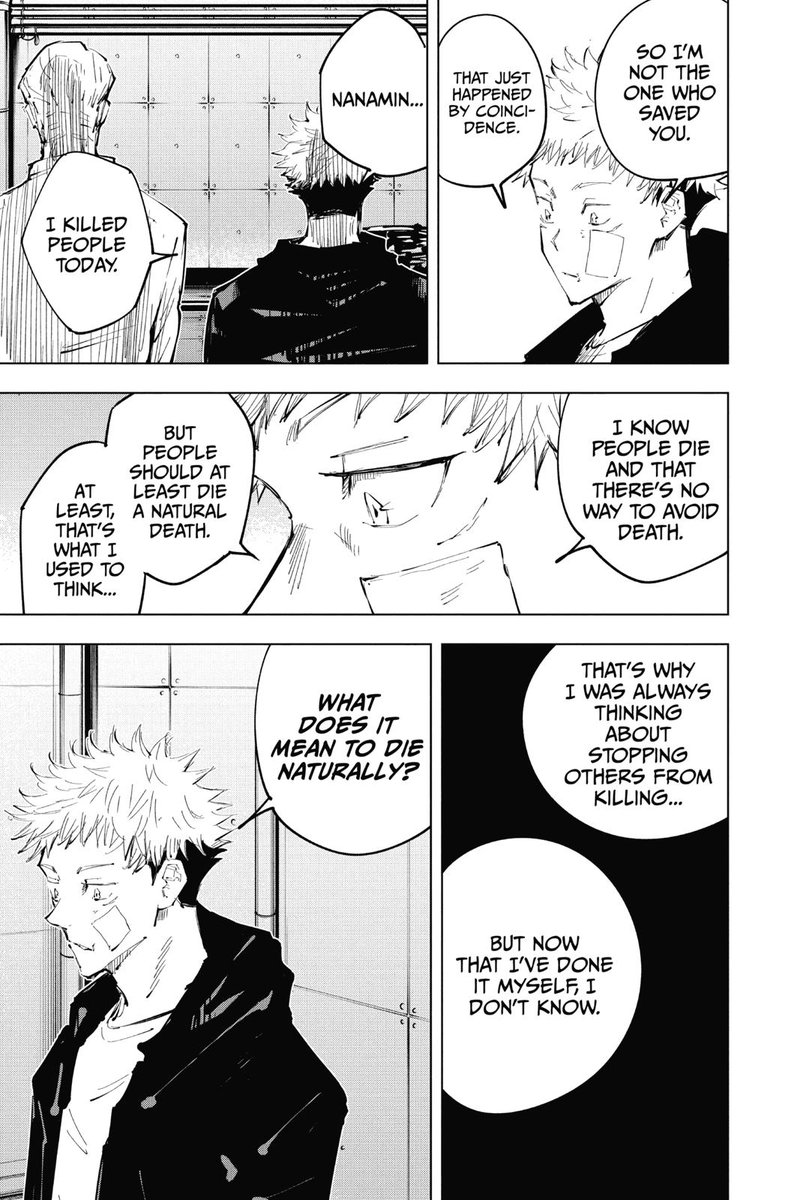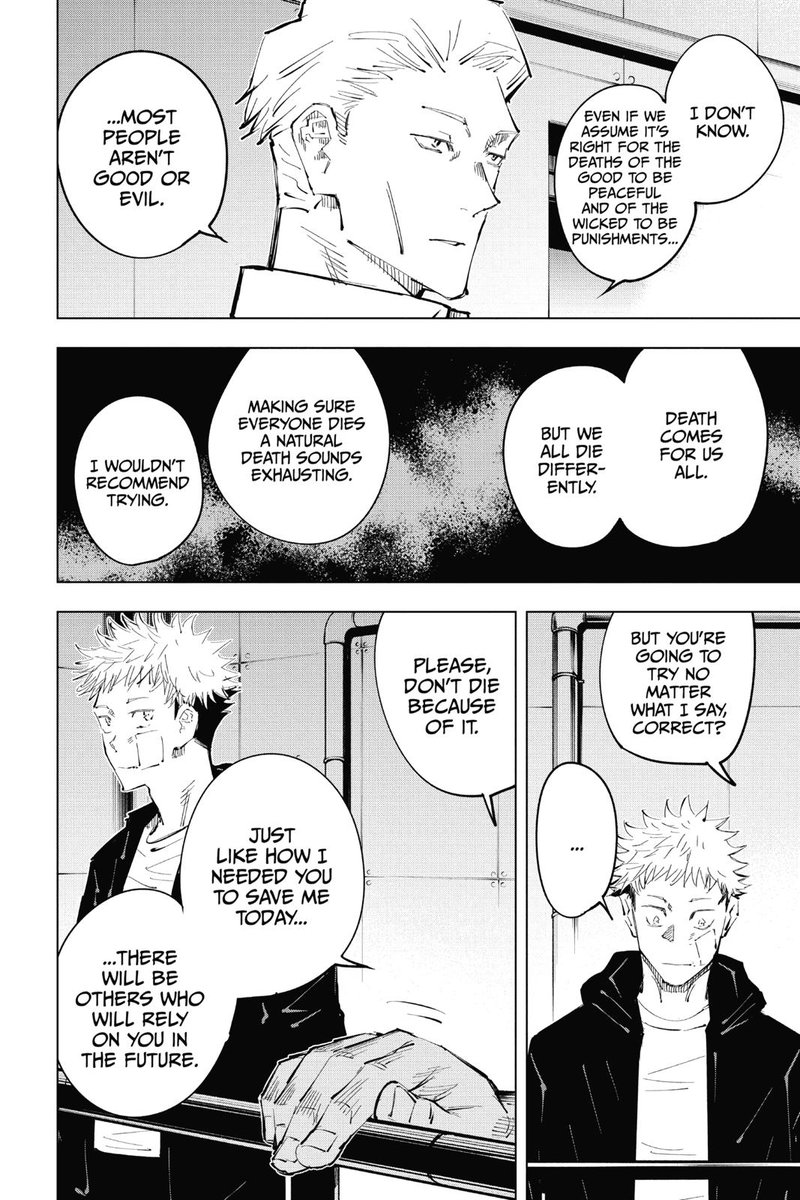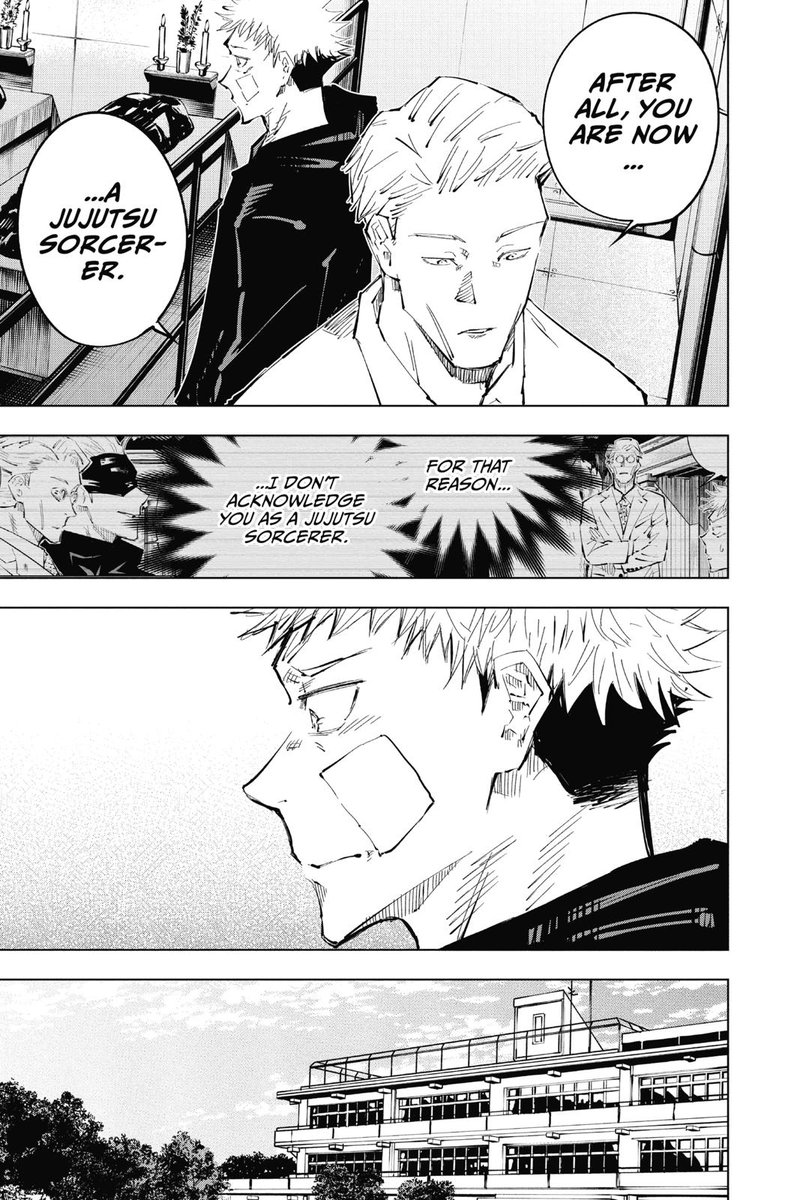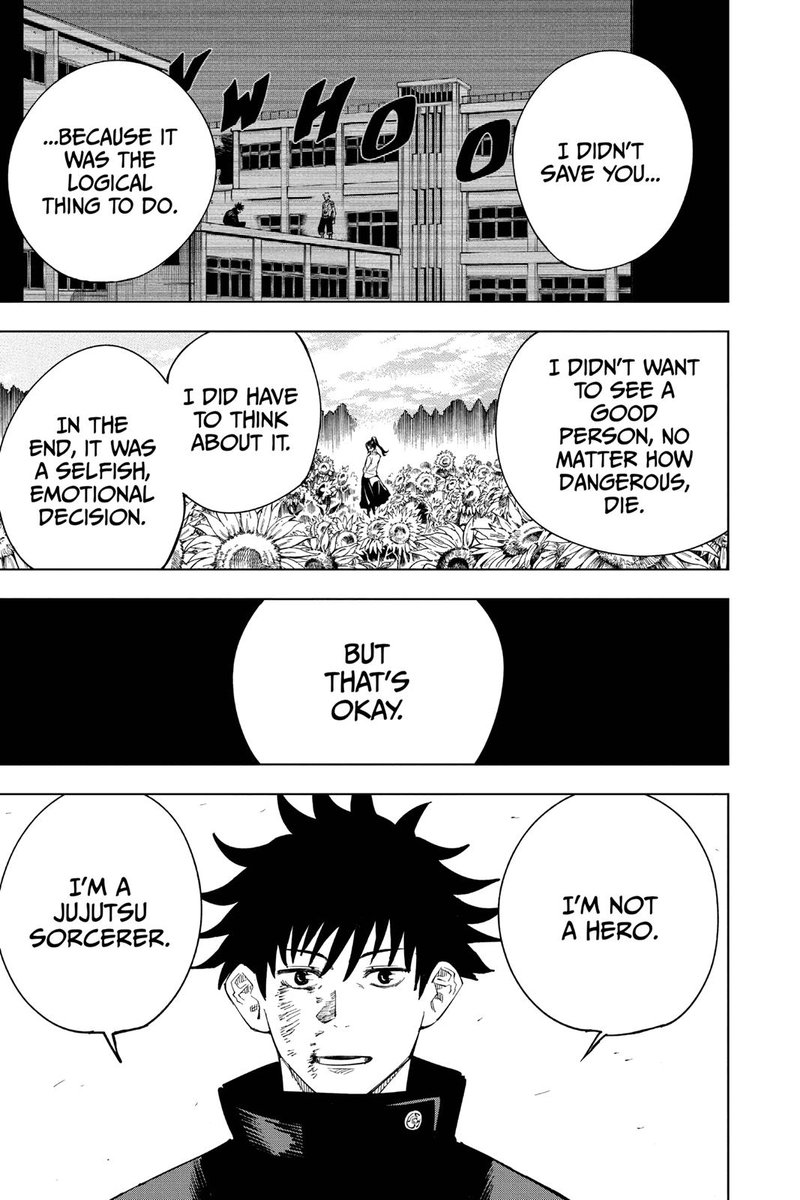In light of what's probably THE most criminally underappreciated arcs finally starting, here's a thread on what makes Young Fish & Reverse Retribution one of my favorite arcs of the story as a proper introduction to JJK's overarching themes, Yuji himself and, of course, Mahito.
Up until this arc, we see sorcerers exorcise evil cursed spirits, and there's no questio as to whether or not they should, bc cursed spirits are obviously meant to be exorcised. This arc starts off with the anomalous phenomenon where live humans are distorted into becoming+
monsters that need to be taken out. Here, Yuji is faced with his first moral dilemma, and the overall tone of the story immediately shifts into something more grim. The source of this? The one who will go on to be one of the story's most impactful antagonists, Mahito.
Before we meet Mahito, we meet Junpei, someone who, as a result of his experiences, harbors intense malicious intent suppressed inside him and his entire introductory sequence is built around hostile and neglectful people gradually causing the seed of hate in him to grow.
It is only fitting that this is where we meet Mahito, the walking manifestation of human hatred. Gege also explains a very notable phenomenon surrounding the birth of special grade curses through them (which later helps us better understand the cursed family itself).
As someone with the power to touch, manipulate and distort the soul — essentially, the core — of living beings, while also being born as a result of human emotion itself, Mahito stands to be both an antithesis and a reflection to humanity itself. Their disregard for human life
and hedonistic outlook on things rather matches the personality one would assign to a creature that is a literal reflection of humanities ugliest traits. “真人“ (Mahito) also directly translates to "Ideal/True Human", which is an interesting dichotomy given that they are a curse,
and yet, they believe that the truest form of a living being is that when they choose to indulge in their deepest desires, unbound by morals and unhindered by consequences. This is why "the heart" holds such less significance to them. This in turn validates everything Junpei was
suppressing inside him, bc if it's true that people don't have heart, it means he was being shunned and rejected by empty vessels that he can wholly hate, and it erases all moral restrictions he had in his mind so far about wanting to consciously hurt people. Mahito "saves" him.
The one who contradicts this Yuji. Yuji shows Junpei the exact opposite of what Mahito shows him— Yuji shows him heart, and makes him believe in it. Both Yuji and Mahito influence him greatly with just one encounter in completely opposite ways. Which one wins out for him?
In the end, it's too late for Yuji to save Junpei. Is it his fault that he chooses to kill people out of vengeance and spite? Absolutely, and Yuji calls him out on that. But is it also true that if he were in an environment that didn't make him feel so neglected, he could have
been a different person? Also true. Here, Gege reinforces a theme they had already touched upon earlier: the unfairness of the Jujutsu world, and how cold and steely sorcerers need to be accept and be a part of it anyway. Mahito in this moment is the literal embodiment of this.
Earlier, Nanami refers to Mahito as a "child", which tells us they're a newborn curse, and compares them to Gojo right at the get-go, who we know is essentially the strongest sorcerer in the story. Nanami notes that Mahito is still growing and given time,
they can become something so terrifying that they might measure on the same scale as Satoru Gojo on the exact opposite spectrum. However, Mahito's primary role in the narrative starts here: where they are explicitly established as a foil to the main protagonist, Itadori Yuji.
In this moment, Mahito, the curse born as an accumulation of the corruption in humans, who also represents a twisted perspective of "true humanity", brings out the worst, rawest, most guttural and uninhibited emotion from deep inside Yuji: pure hatred and killing intent.
However, Yuji's morals and core purpose stands firm. When Mahito refers to Yuji as their "mortal enemy", the story wants us to understand that this applies to more than just conflicting techniques, but the fact that Mahito and Yuji are each other's exact opposites
In terms of what they stand for, what they represent & their roles in pulling the narrative forward. Yuji, who believes in heart and strives to give himself & everyone around him a good death and find the meaning of it. Mahito, who disregards the heart and kills in a way that
distorts the very essence of a person's being and looks to "kill their very soul". They drive each other to bring out the worst in one another, while also serving as an incentive to grow stronger and push forwards. Mahito and Yuji are opposite sides of the same narrative coin.
And then, ironically like humans when driven to a corner and need to grow to survive: Mahito, the child curse, evolves. For the first time among many instances to come in the future.
Young Fish & Reverse Retribution arc establishes that Jujutsu Kaisen as a story will be unfair & unforgiving, and for it's characters to survive, they need to look past conventional moral grounds and be able to find enough meaning and purpose to steel themselves for the brutality
theyre bound to face if they want to be able to save themselves & others. Like Mahito is a fledgling curse, Yuji is a fledgling sorcerer who is only starting to learn. But he does, & that's fine, even when he's not able to save Junpei, bc he's not a hero. He's a Jujutsu Sorcerer.

 Read on Twitter
Read on Twitter